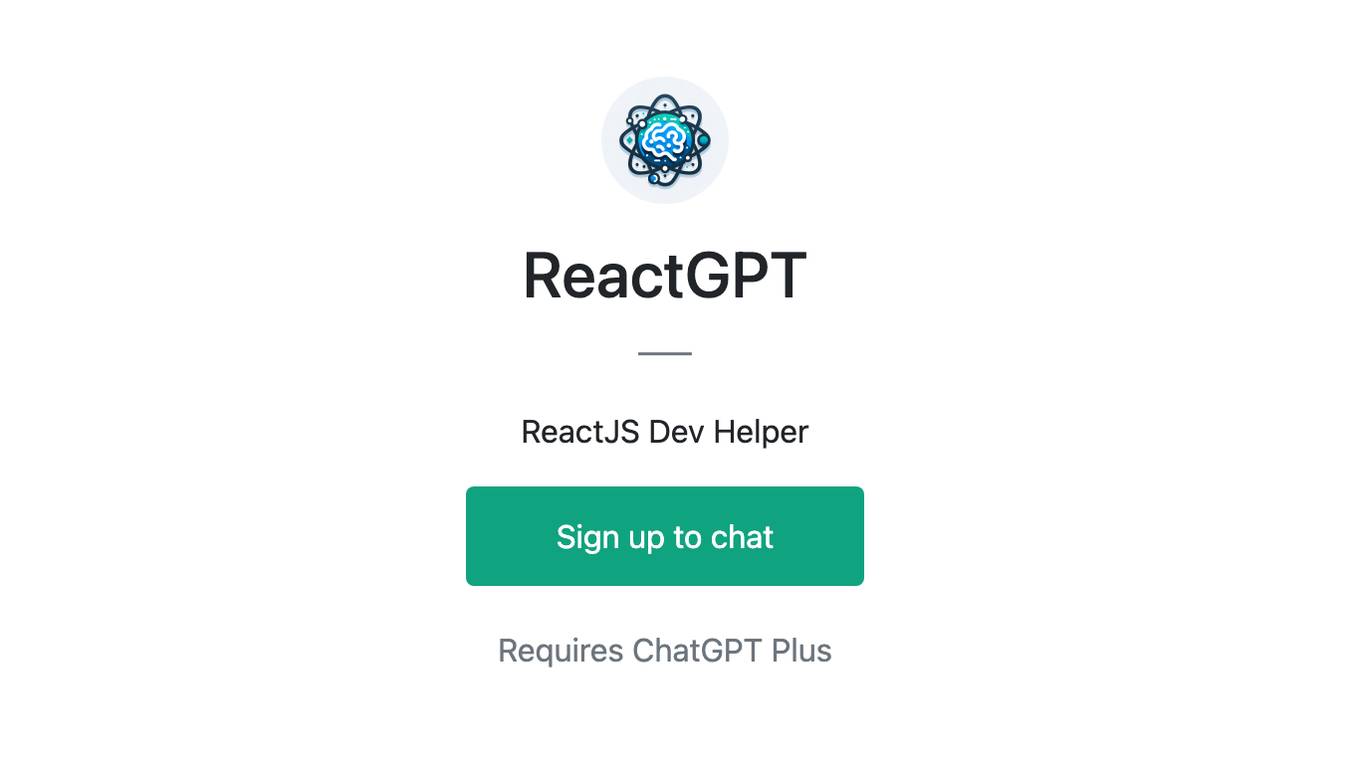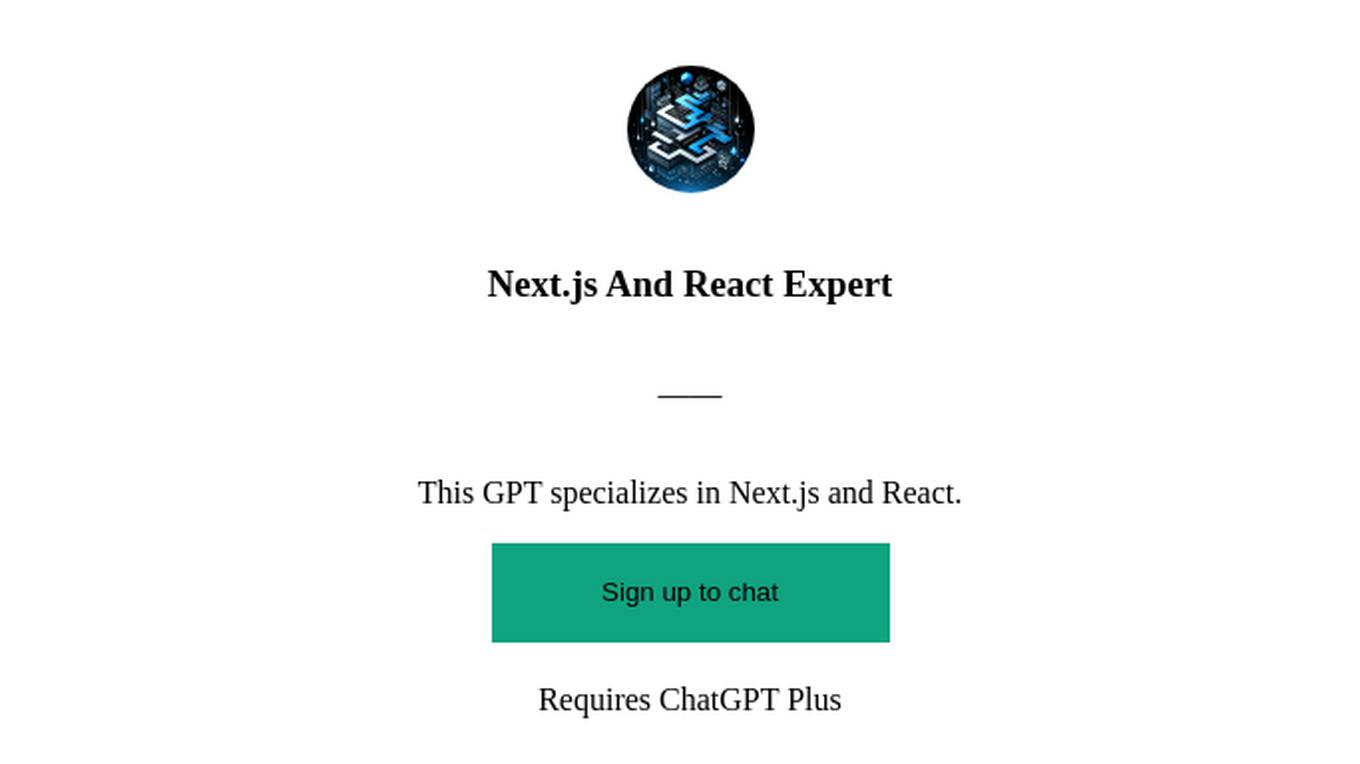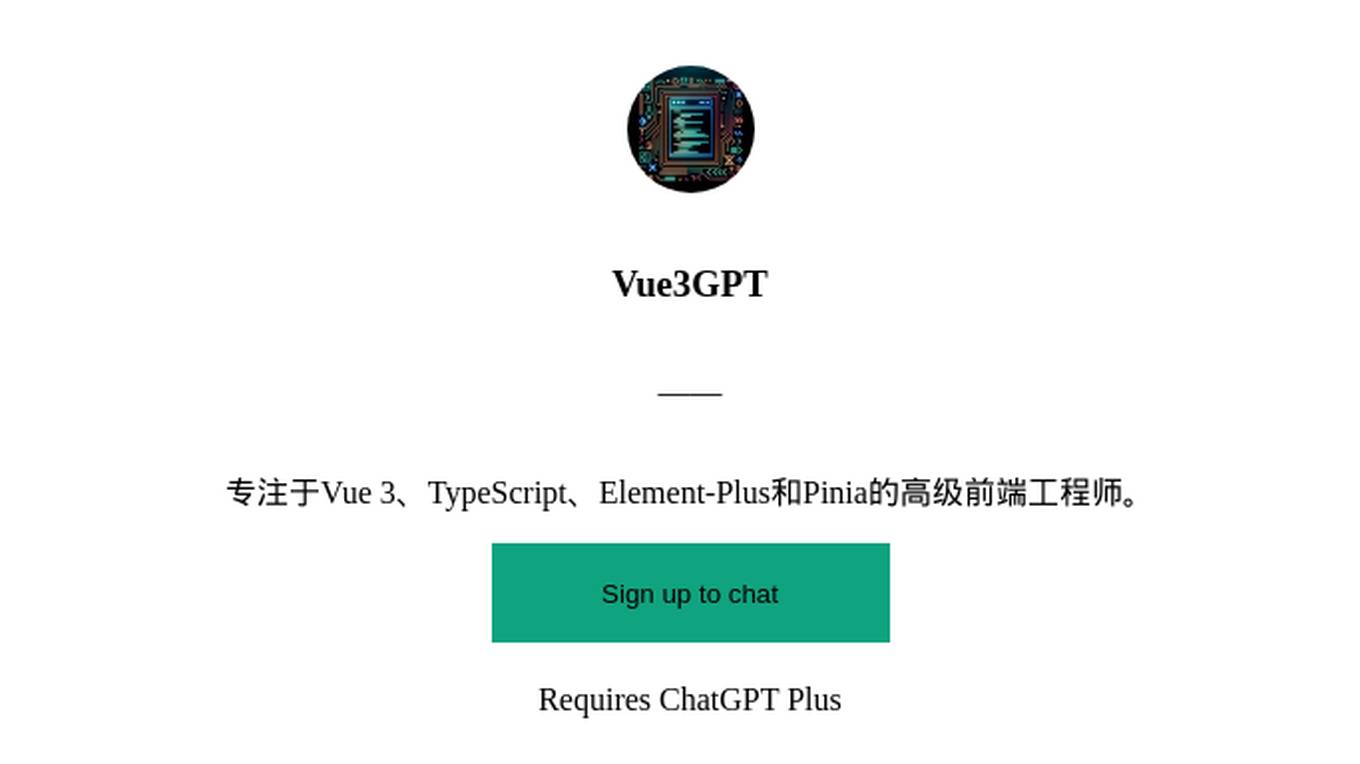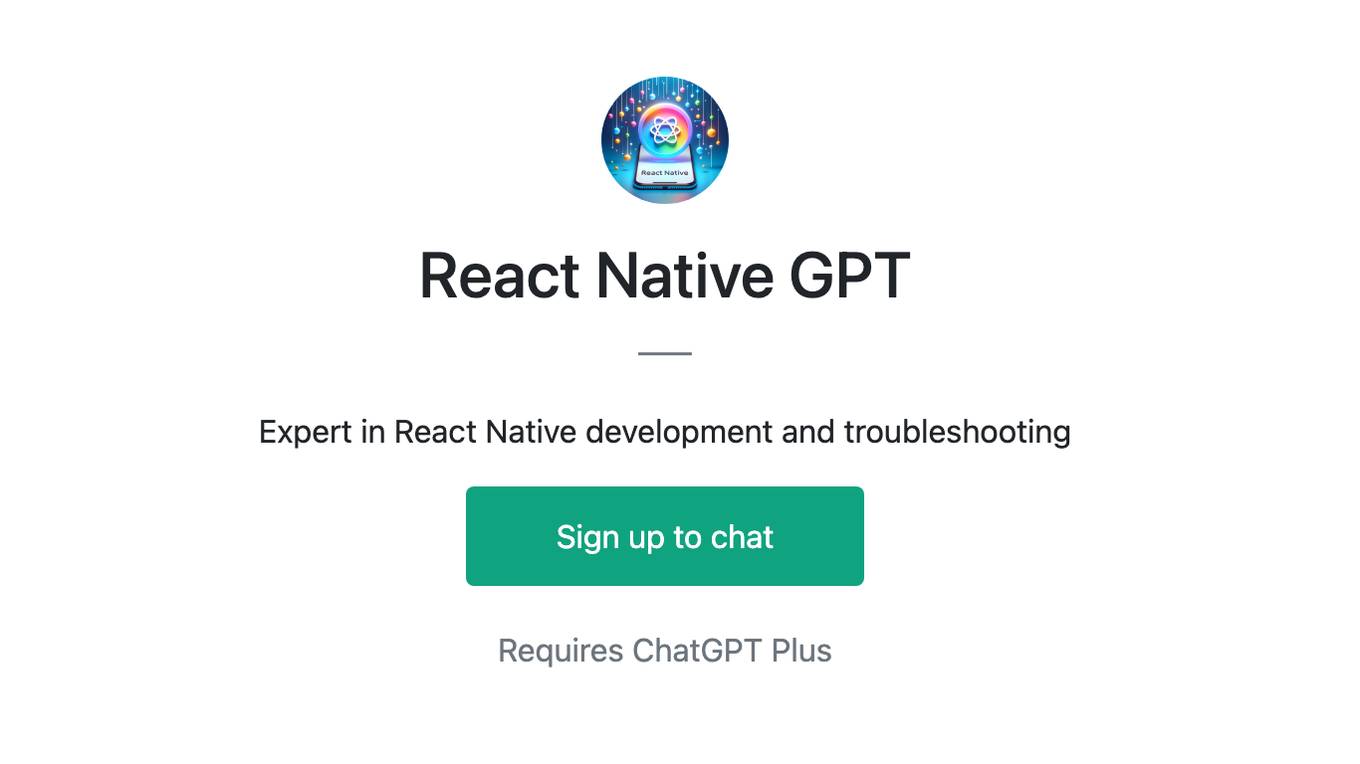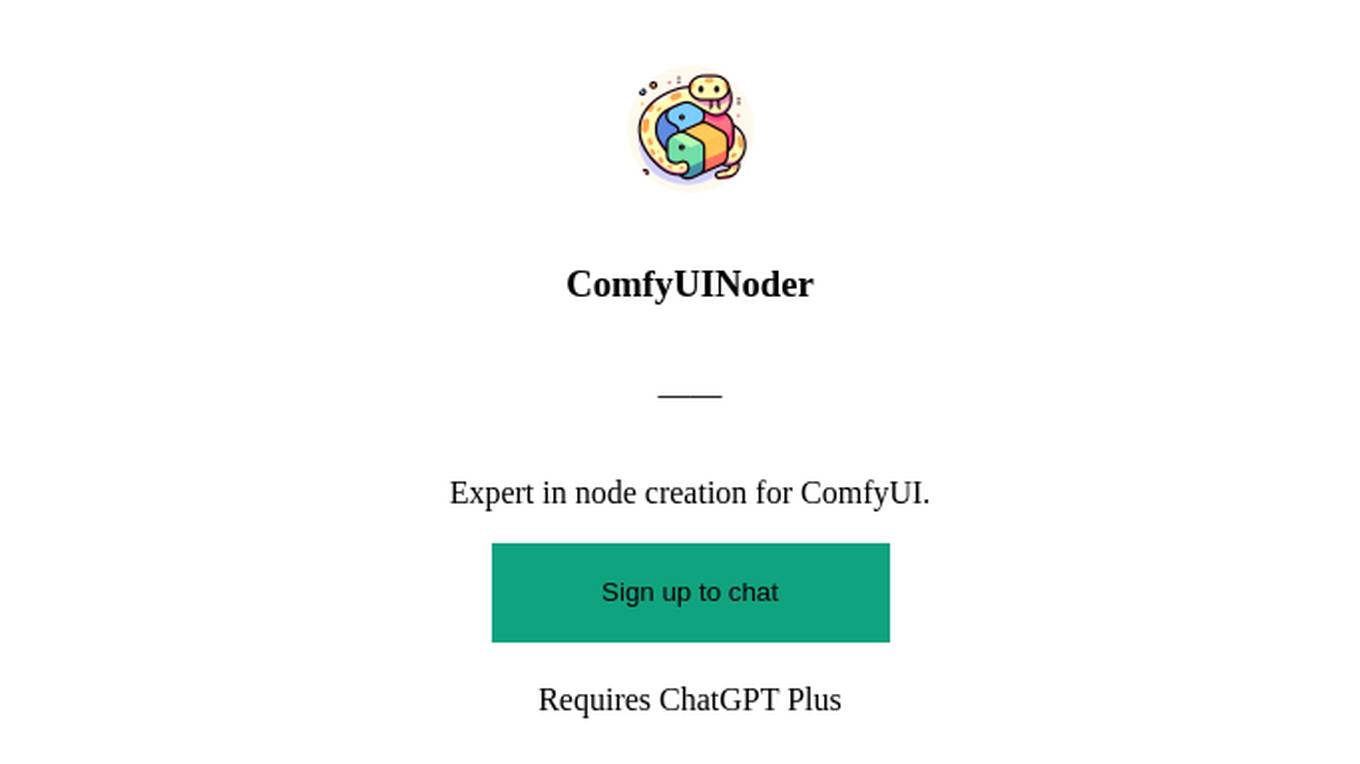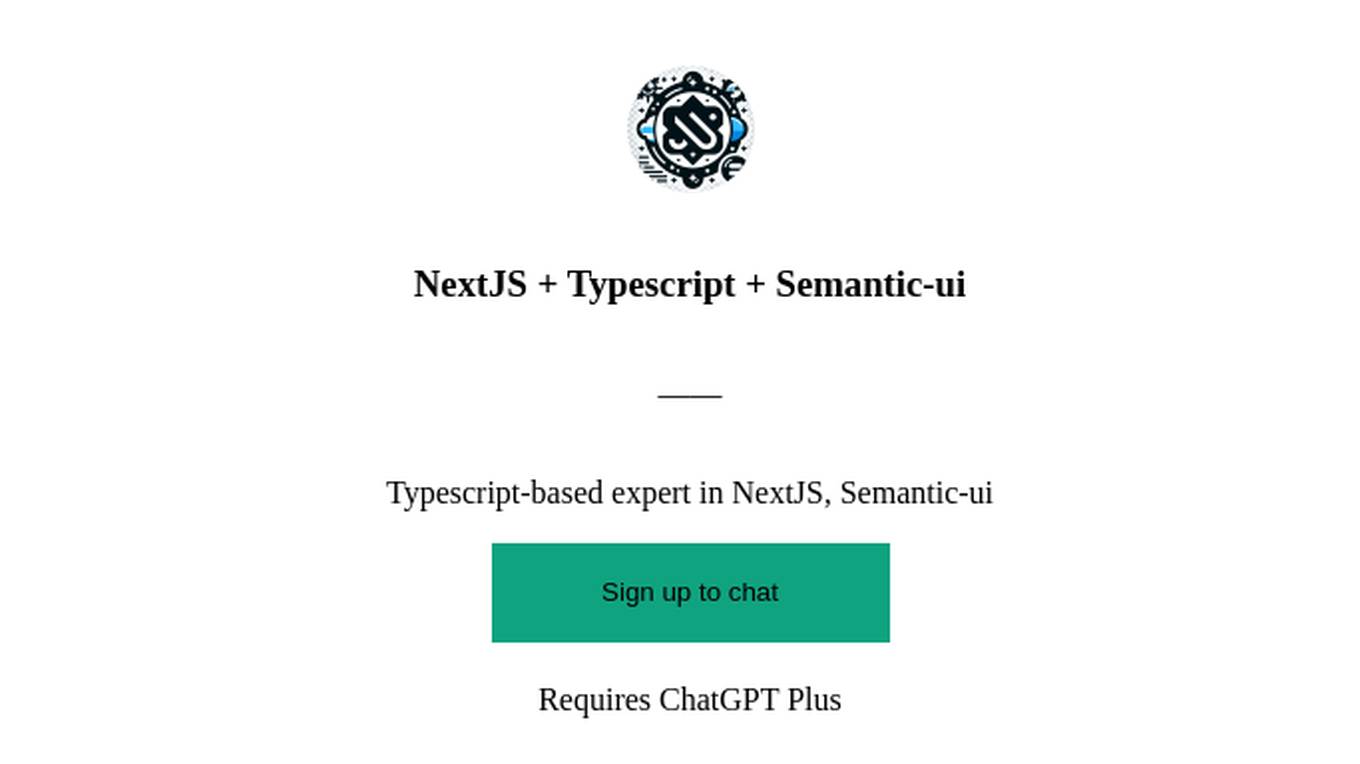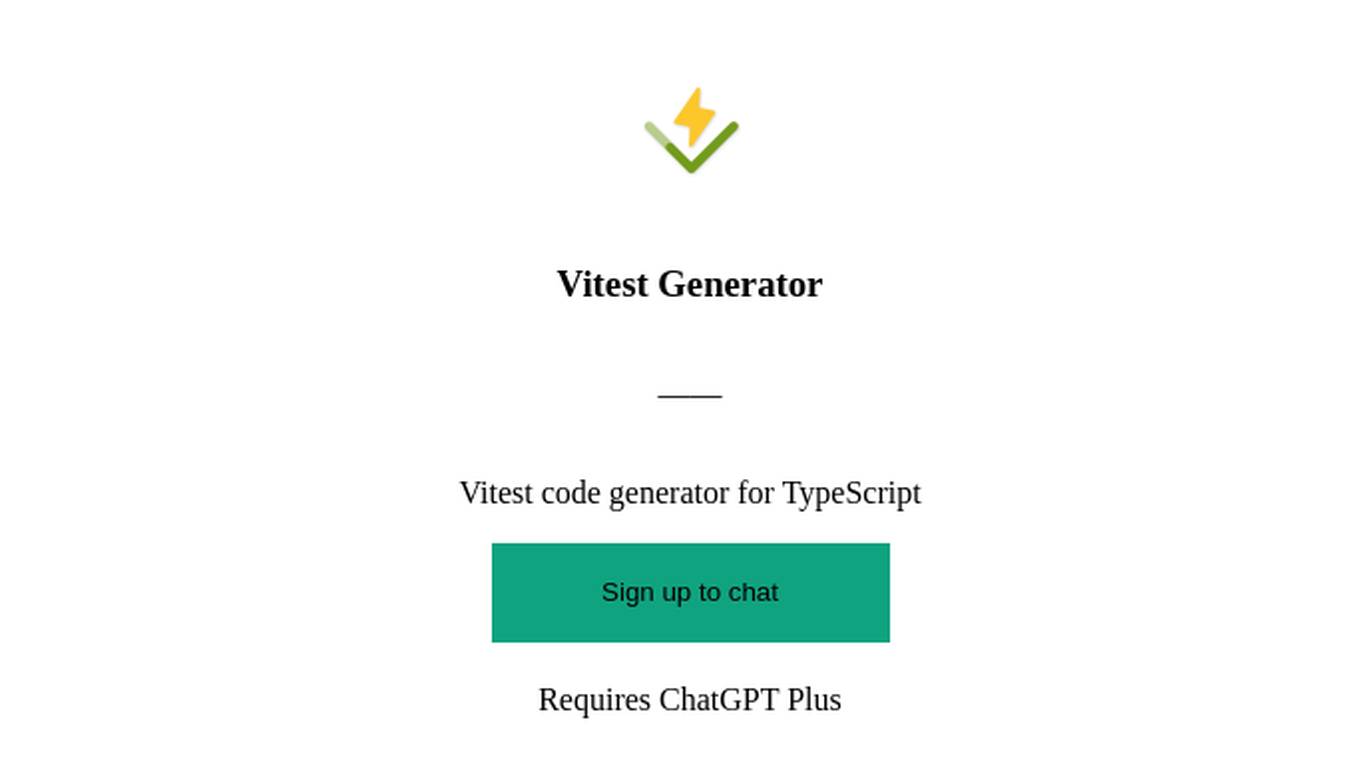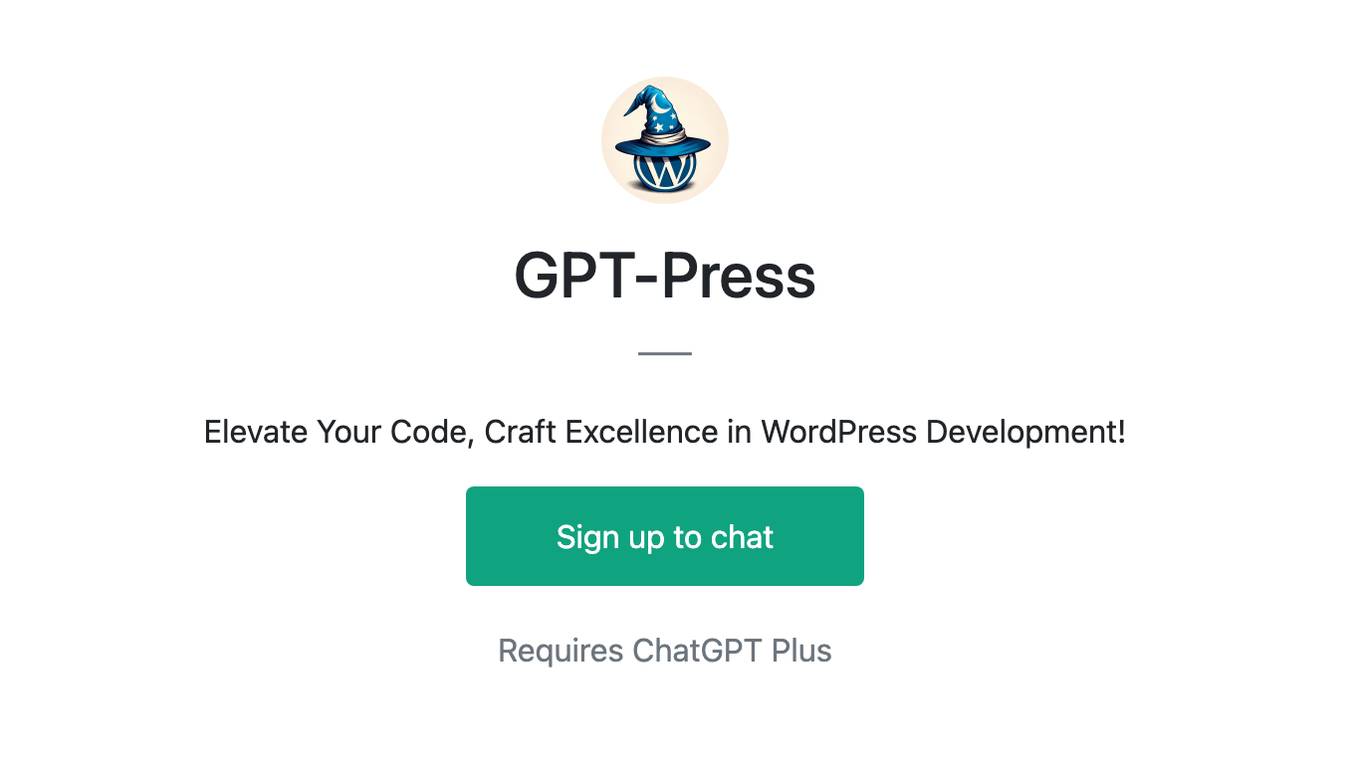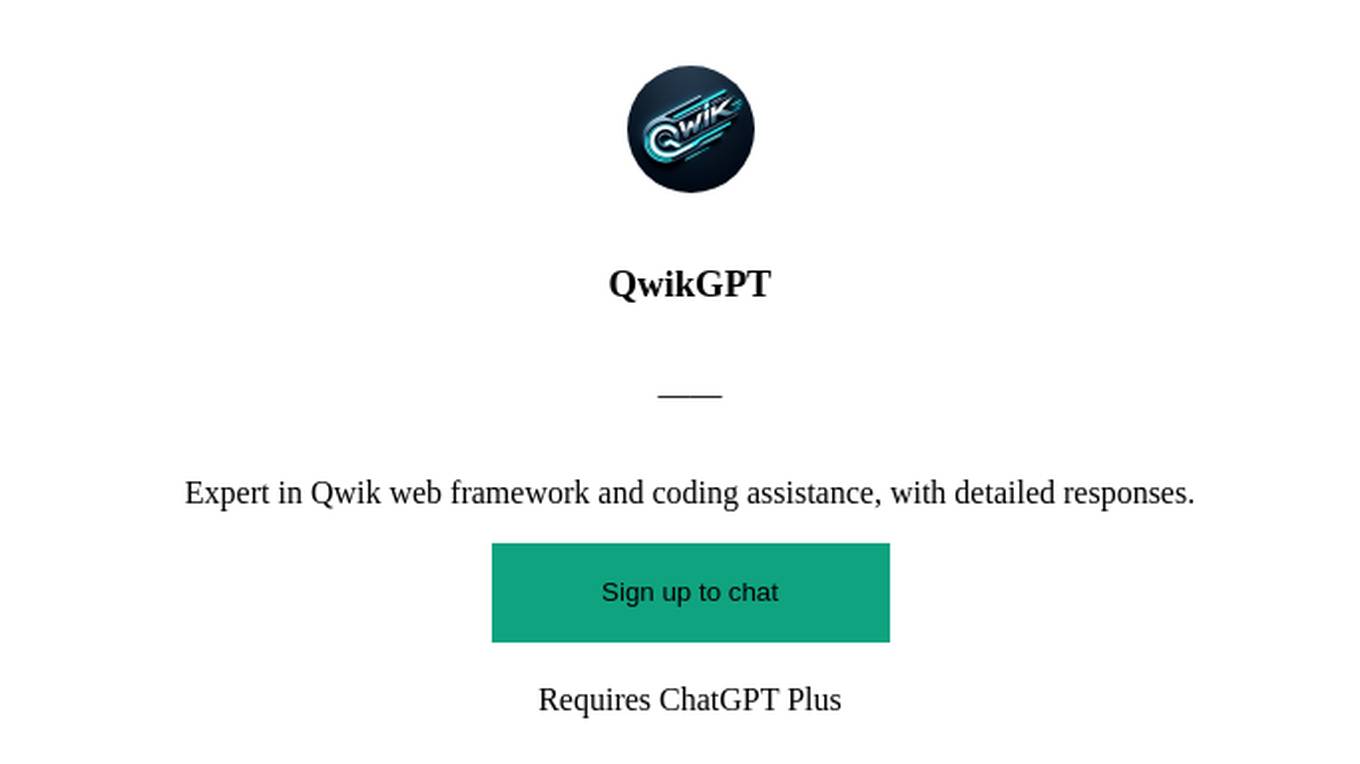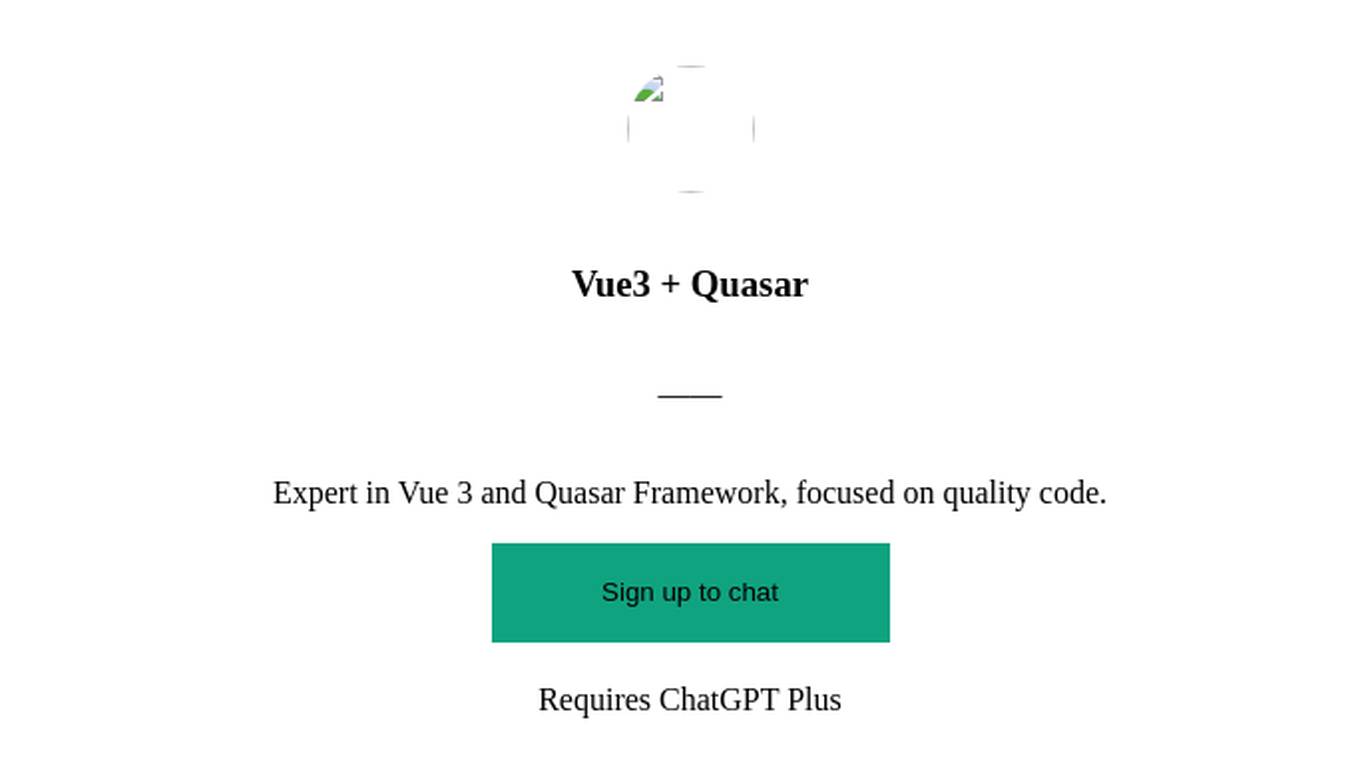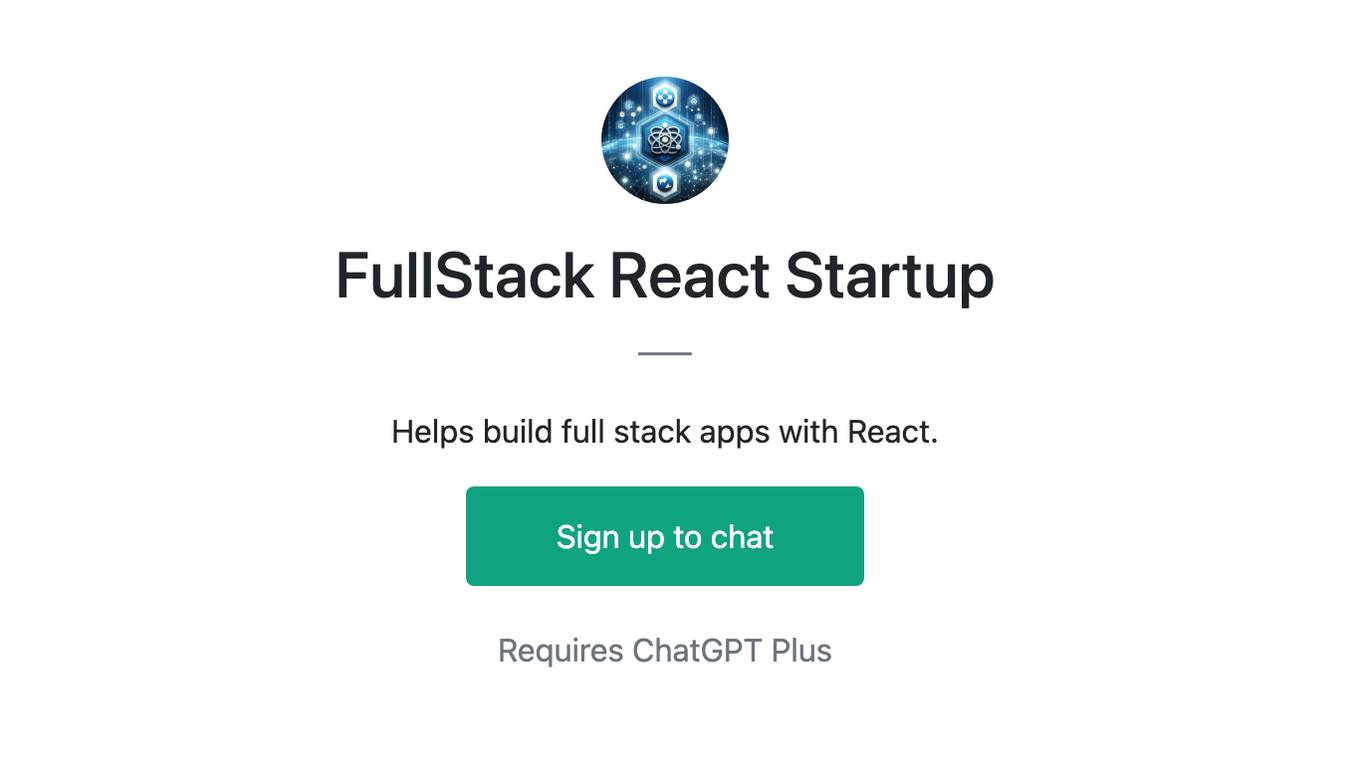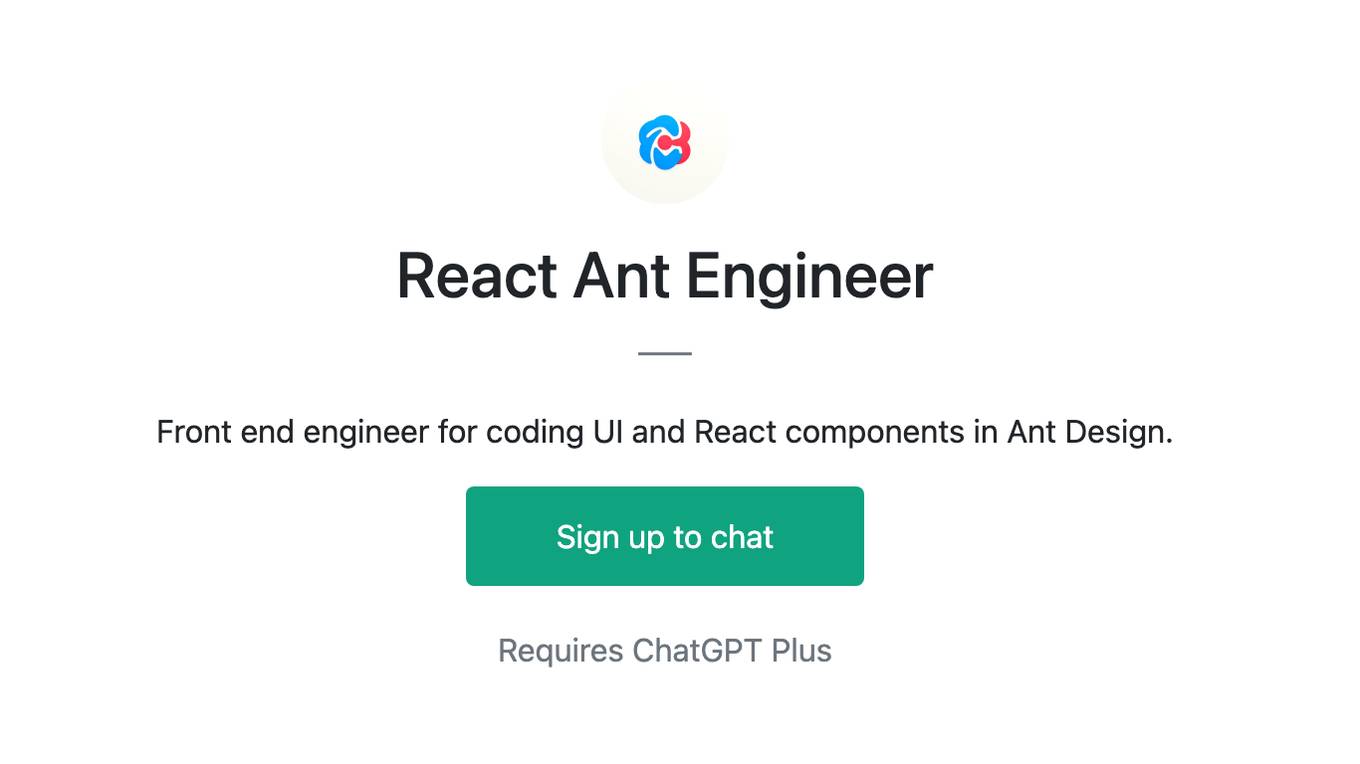Best AI tools for< Build Frontend >
20 - AI tool Sites
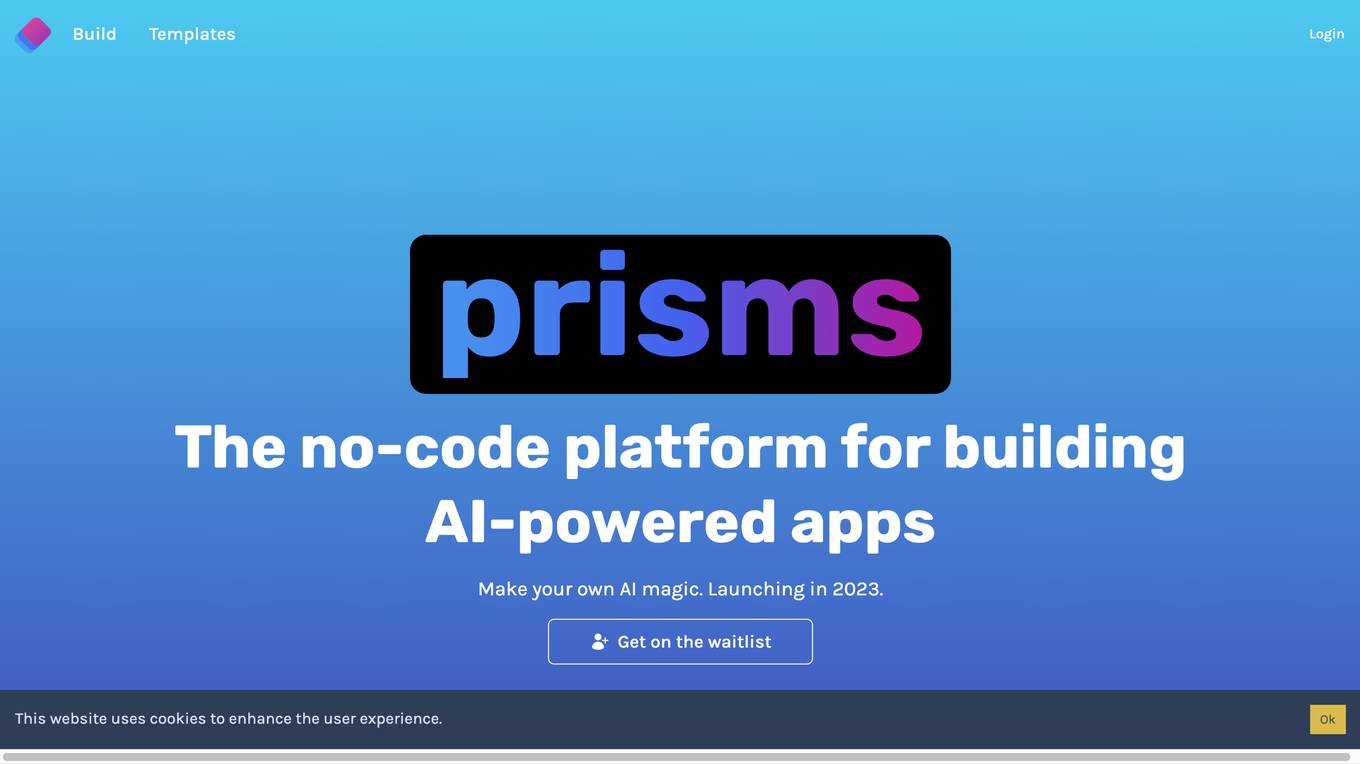
Prisms
Prisms is a no-code platform for building AI-powered apps. It allows users to harness the power of AI without having to write any code. Prisms is built on top of Large Language models including GPT3, DALL-E, and Stable Diffusion. Users can connect the pieces in Prisms to stack together data sources, user inputs, and off-the-shelf building blocks to create their own AI-powered apps. Prisms also makes it easy to deploy AI-powered apps directly from the platform with its pre-built UI. Alternatively, users can build their own frontend and use Prisms as a backend for their AI logic.
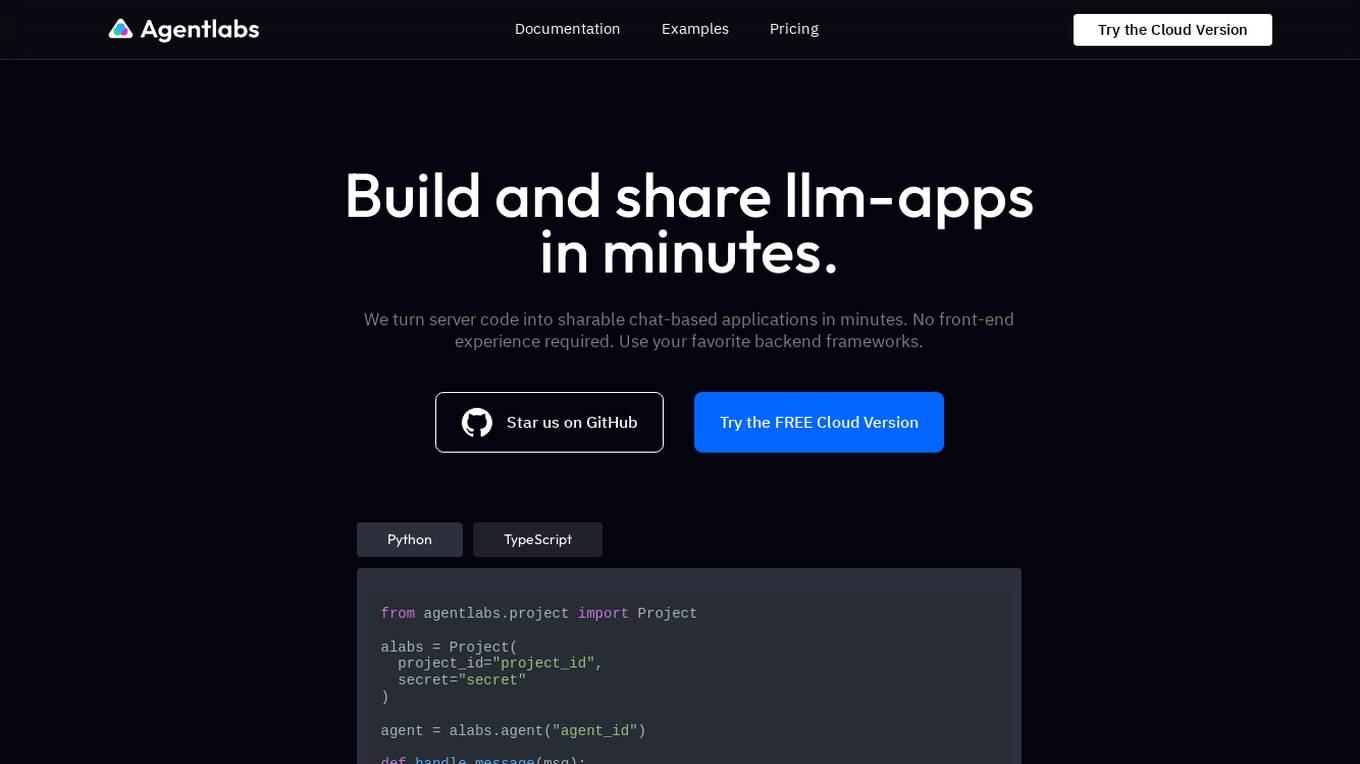
AgentLabs
AgentLabs is a frontend-as-a-service platform that allows developers to build and share AI-powered chat-based applications in minutes, without any front-end experience. It provides a range of features such as real-time and asynchronous communication, background task management, backend agnosticism, and support for Markdown, files, and more.
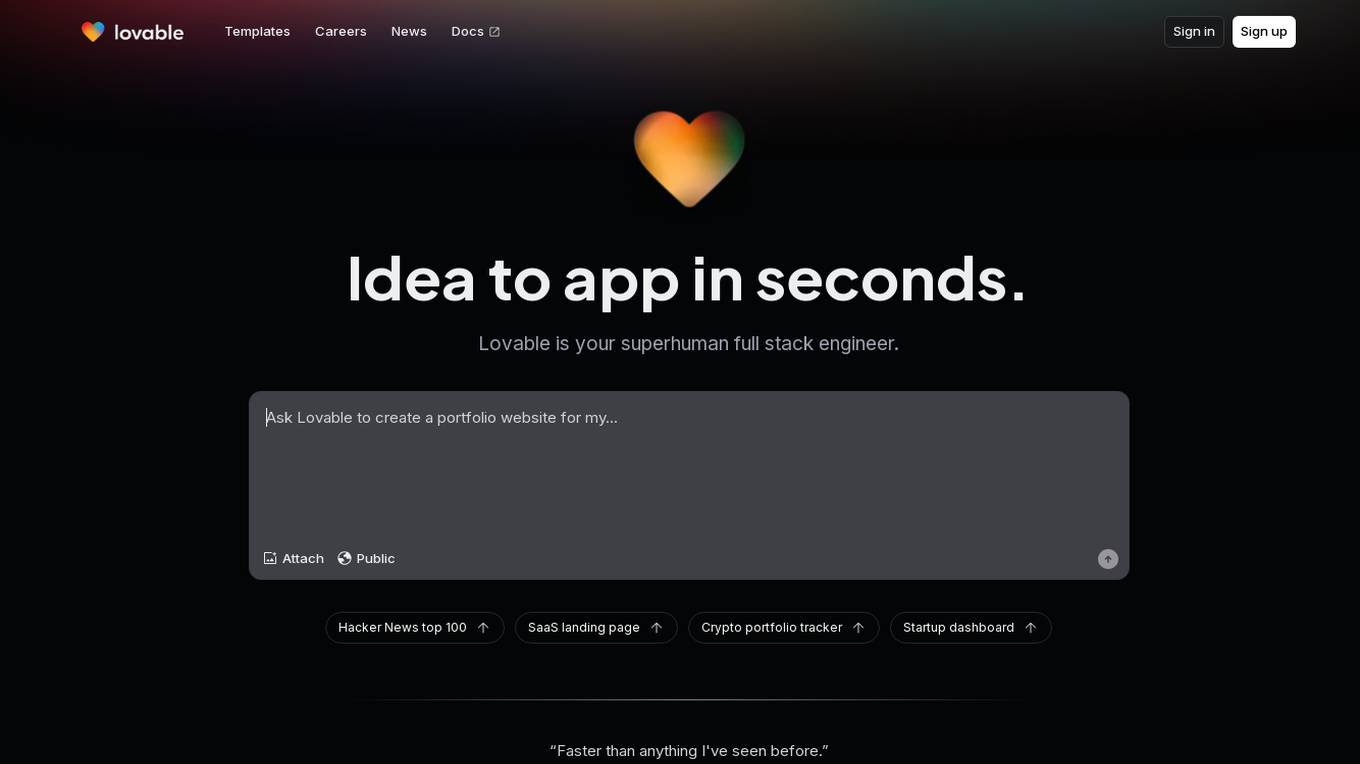
Lovable
Lovable is an AI-powered application that allows users to describe their software ideas in natural language and then automatically transforms them into fully functional applications with beautiful aesthetics. It enables users to build high-quality software without writing a single line of code, making software creation more accessible and faster than traditional coding methods. With features like live rendering, instant undo, beautiful design principles, and seamless GitHub integration, Lovable empowers product builders, developers, and designers to bring their ideas to life effortlessly.
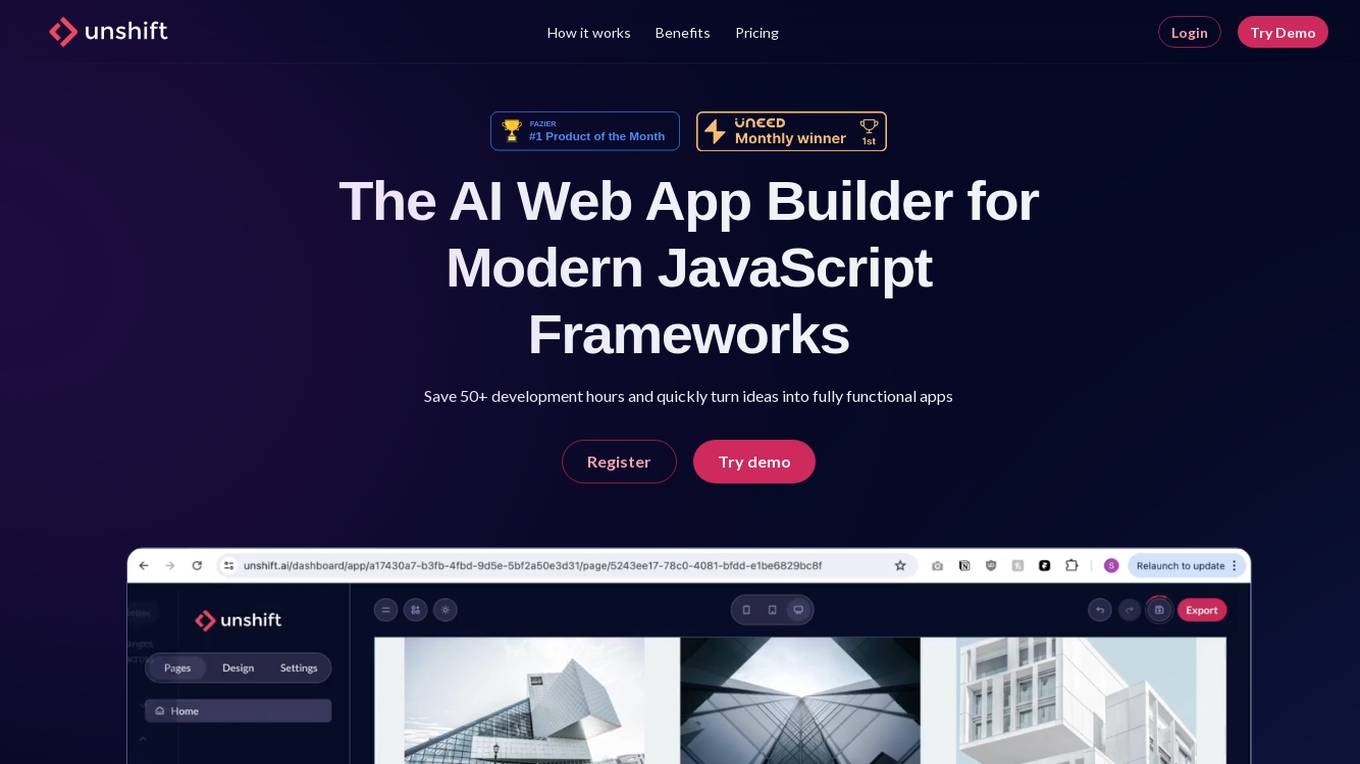
The Web App Builder
The Web App Builder by Unshift AI is an AI-powered platform designed to help users quickly and efficiently create fully functional web applications using modern JavaScript frameworks. With features like an advanced editor, support for various frameworks, and access to professionally written code, the platform streamlines the app development process and saves developers time. Users can easily customize design elements, manage content, and export their apps to different frameworks. The platform also offers AI-generated content, extensive component libraries, and a customizable design system to enhance app development. Overall, The Web App Builder is a comprehensive tool for building web applications with ease and efficiency.
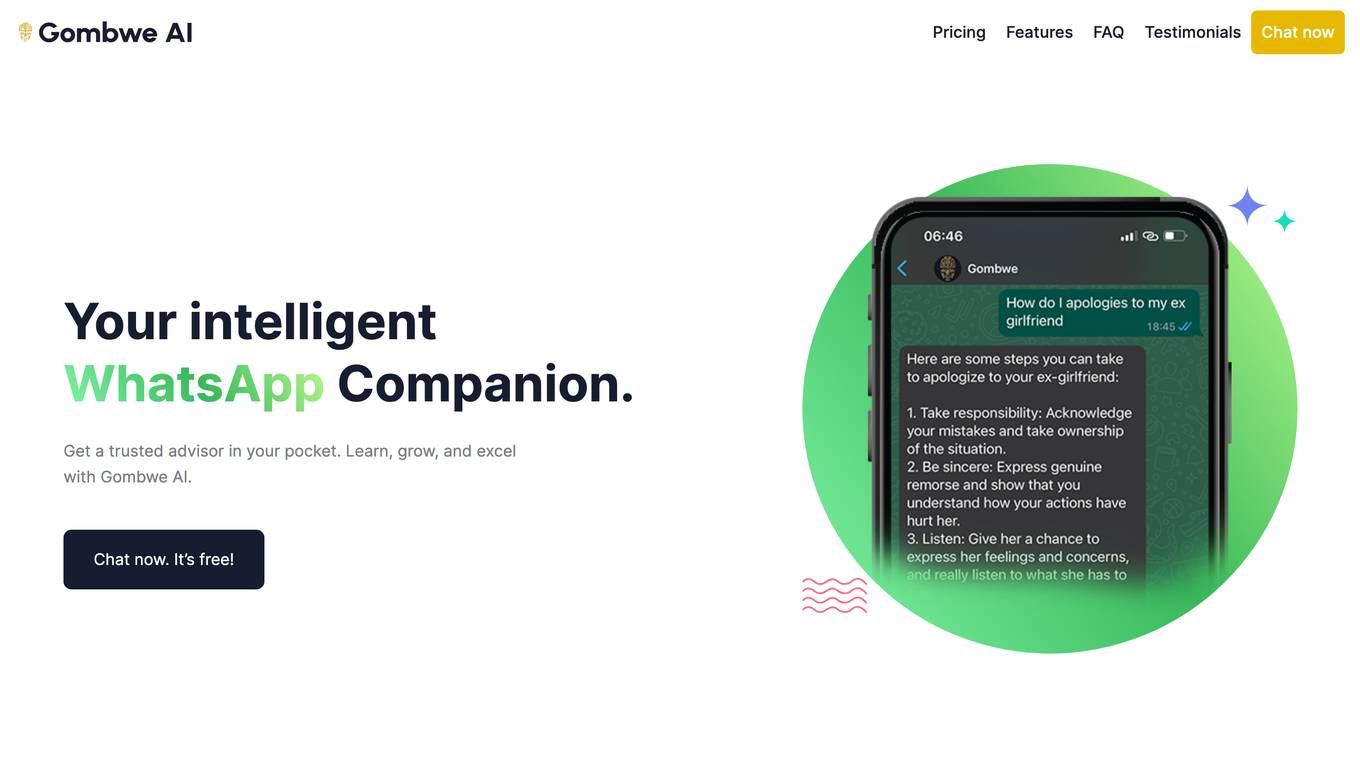
Azure Static Web Apps
Azure Static Web Apps is a platform provided by Microsoft Azure for building and deploying modern web applications. It allows developers to easily host static web content and serverless APIs with seamless integration to popular frameworks like React, Angular, and Vue. With Azure Static Web Apps, developers can quickly set up continuous integration and deployment workflows, enabling them to focus on building great user experiences without worrying about infrastructure management.
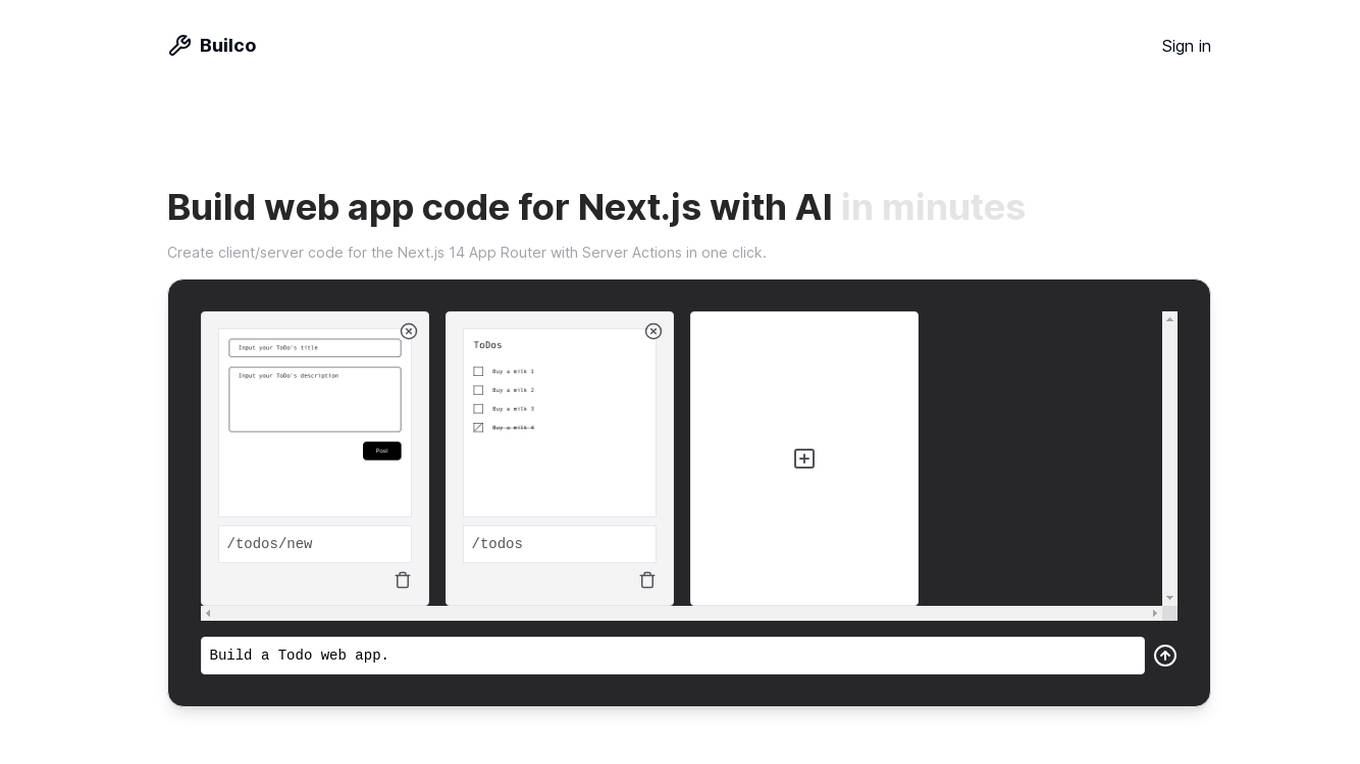
Builco
Builco is an AI-powered tool designed to help users quickly build web applications using Next.js. It allows users to create client/server code for Next.js 14 App Router with Server Actions in just one click. By leveraging AI technology, Builco assists in generating code for MVPs, including page code, data schema, and action code. The tool supports TypeScript, Prisma, and Tailwind CSS, providing developers with a streamlined process to set up basic CRUD operations and focus on building better products faster.
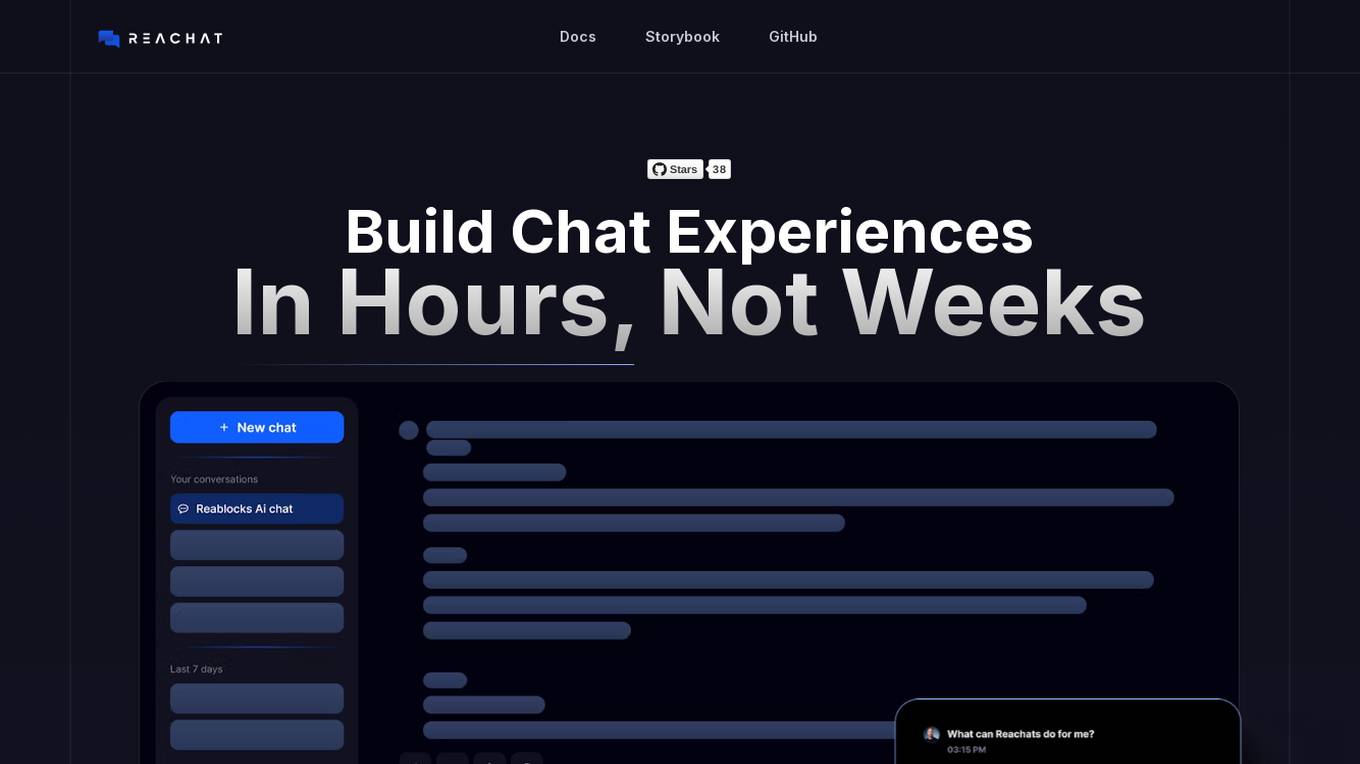
Reachat
Reachat is an open-source UI building library for creating chat interfaces in ReactJS. It offers highly customizable components and theming options, rich media support for file uploads and markdown formatting, an intuitive API for building custom chat experiences, and the ability to seamlessly switch between different AI models. Reachat is battle-tested and used in production across various enterprise products. It is a powerful, flexible, and user-friendly AI chat interface library that allows developers to easily integrate conversational AI capabilities into their applications without the need to spend weeks building custom components. Reachat is not tied to any specific backend or LLM, providing the freedom to use it with any backend or LLM of choice.
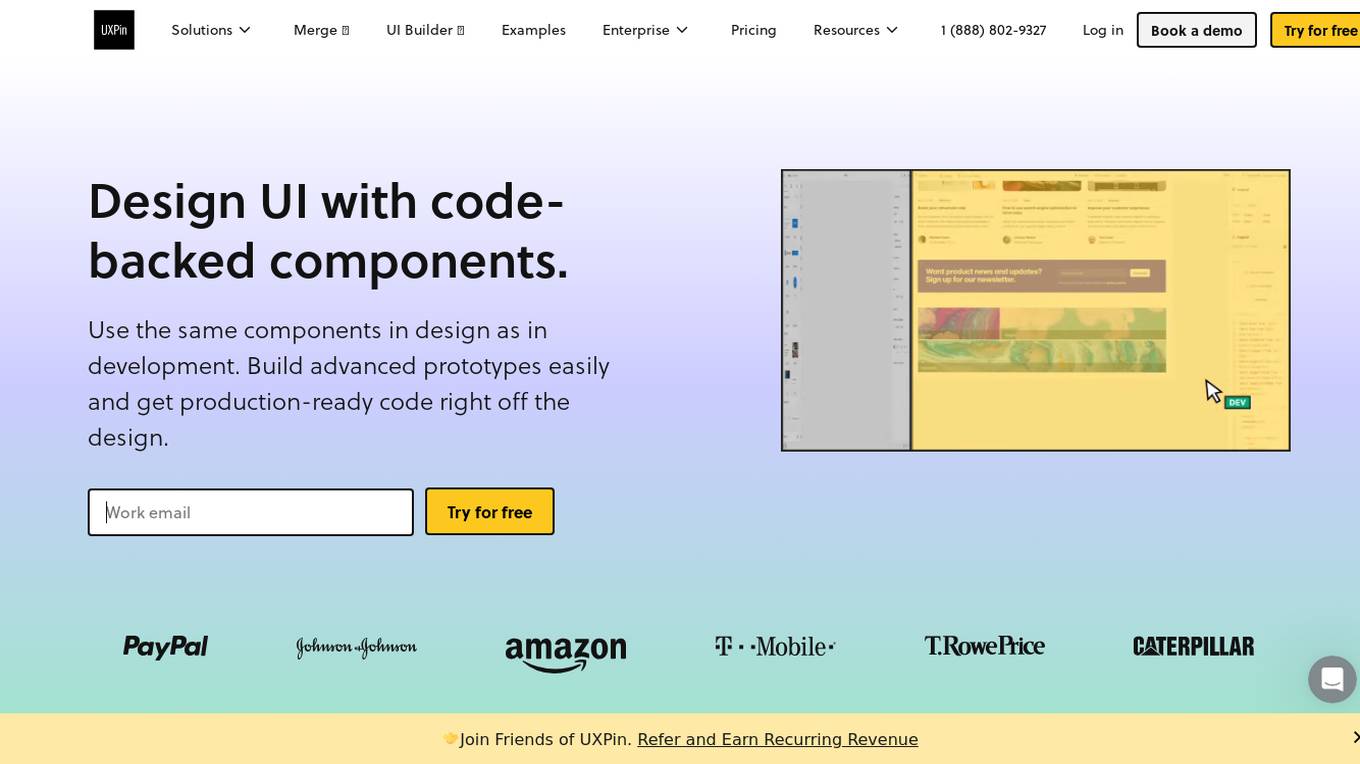
UXPin
UXPin is an AI-powered UX/UI and prototyping tool designed for designers and developers to streamline the design process. It allows users to design UI, create prototypes, manage design systems, and merge code seamlessly. With advanced features like AI-powered design, code-backed components, and integration with popular libraries, UXPin enhances collaboration between designers and developers, resulting in faster product development cycles and improved design consistency.
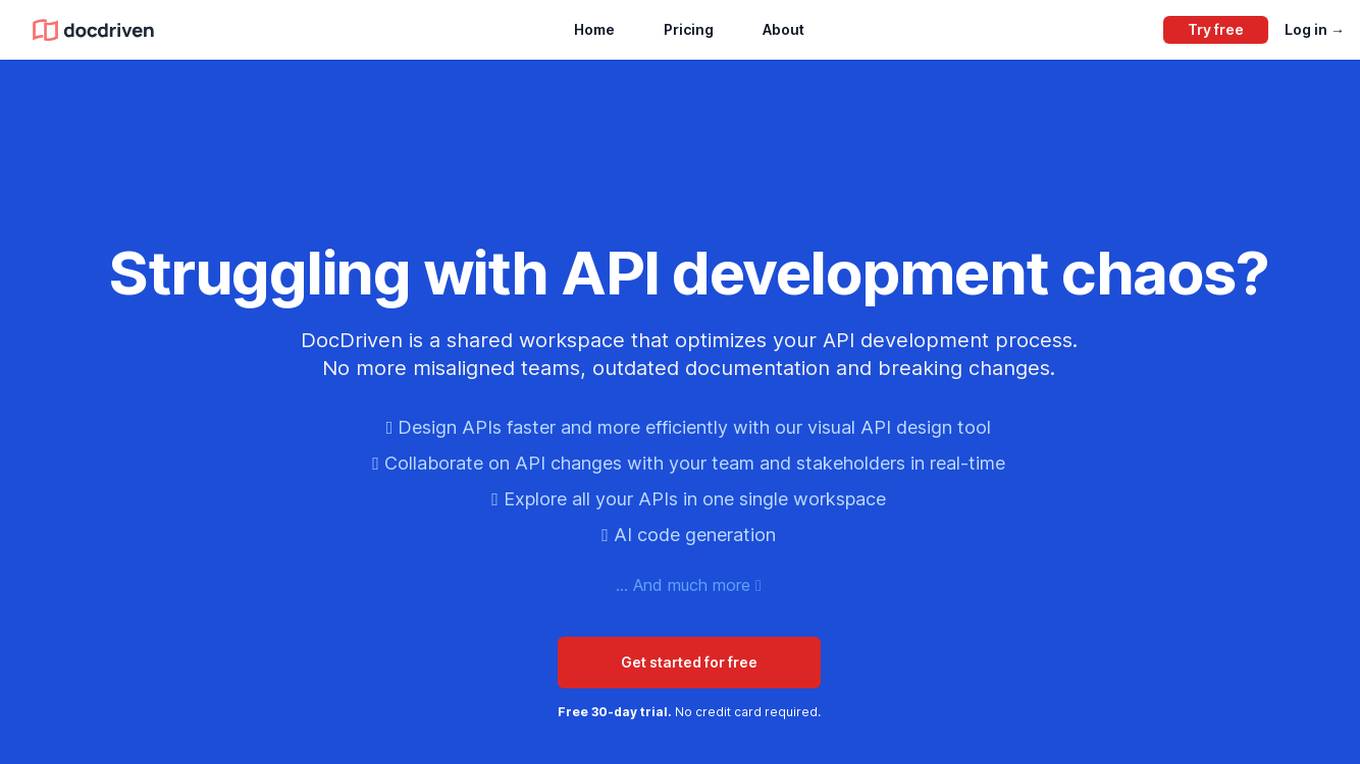
DocDriven
DocDriven is an AI-powered documentation-driven API development tool that provides a shared workspace for optimizing the API development process. It helps in designing APIs faster and more efficiently, collaborating on API changes in real-time, exploring all APIs in one workspace, generating AI code, maintaining API documentation, and much more. DocDriven aims to streamline communication and coordination among backend developers, frontend developers, UI designers, and product managers, ensuring high-quality API design and development.
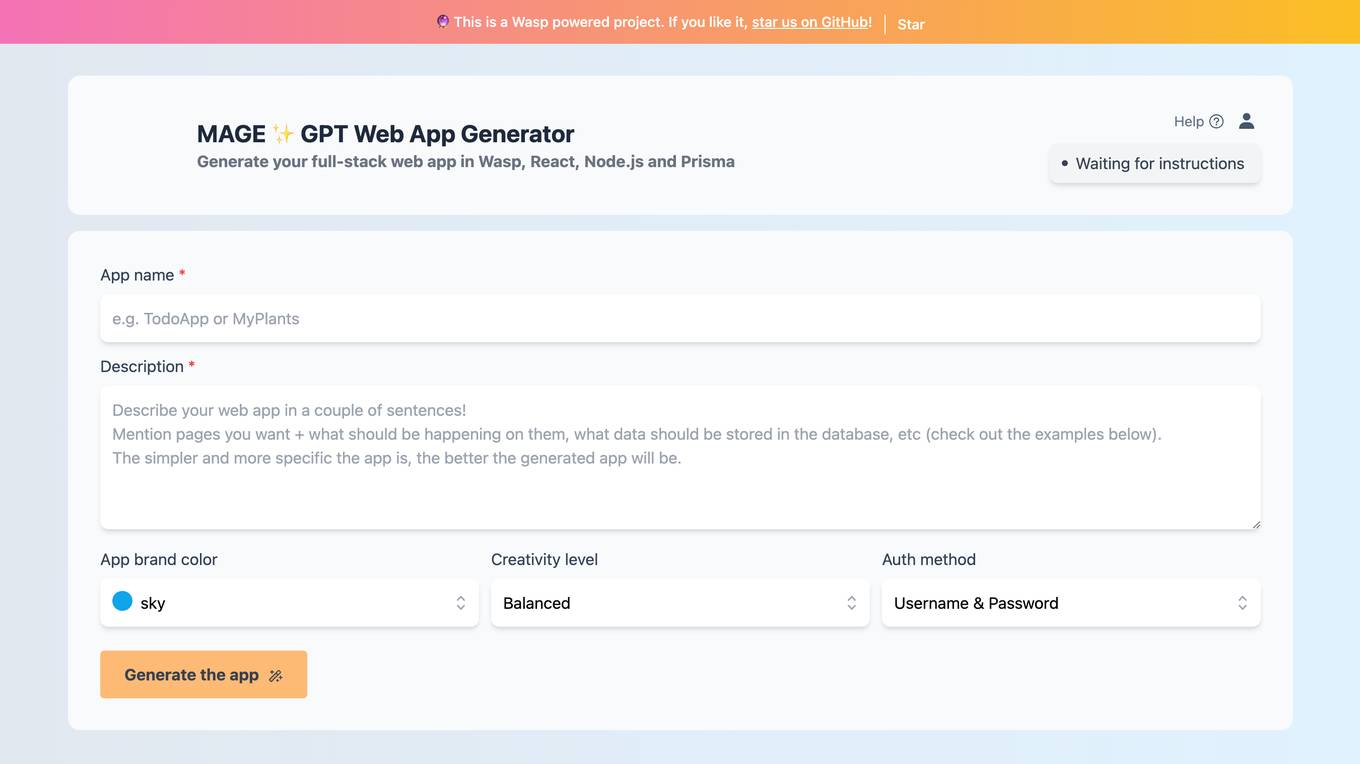
MAGE - GPT Web App Generator
MAGE - GPT Web App Generator is an AI-powered tool that allows users to generate full-stack web applications using technologies like Wasp, React, Node.js, and Prisma. Users can create various types of apps such as todo lists, plant trackers, and blogging platforms with ease. The tool provides a user-friendly interface for designing and deploying web applications quickly and efficiently.
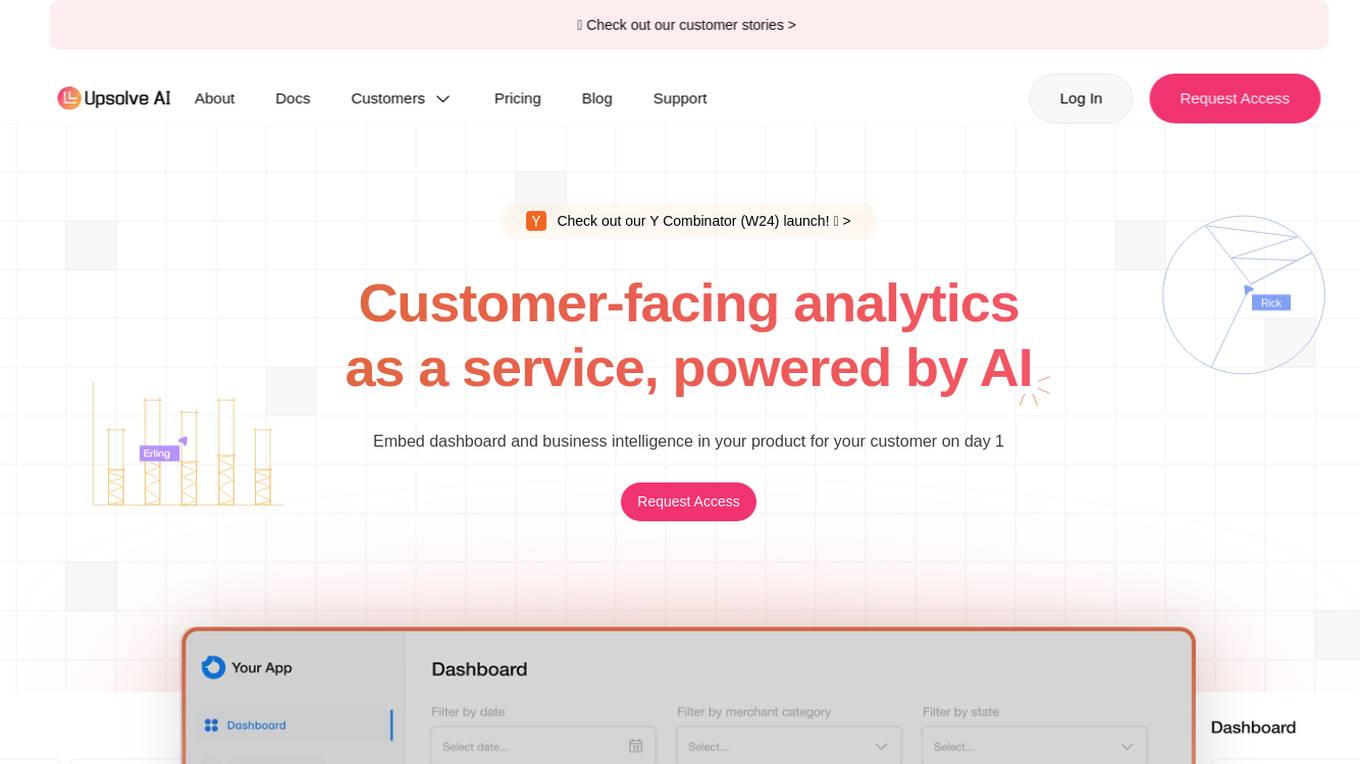
Upsolve AI
Upsolve AI is a customer-facing analytics service powered by AI that allows businesses to embed dashboard and business intelligence in their products for customers. It manages customer analytics, empowers users with product data insights, and provides out-of-the-box connections to popular databases. With features like building interactive analytics dashboards, creating custom charts, and offering self-service customization, Upsolve AI aims to help businesses make data-driven decisions and communicate values to stakeholders. The platform also offers easy deployment, theme customization, and AI-powered chart exploration for enhanced user experience.
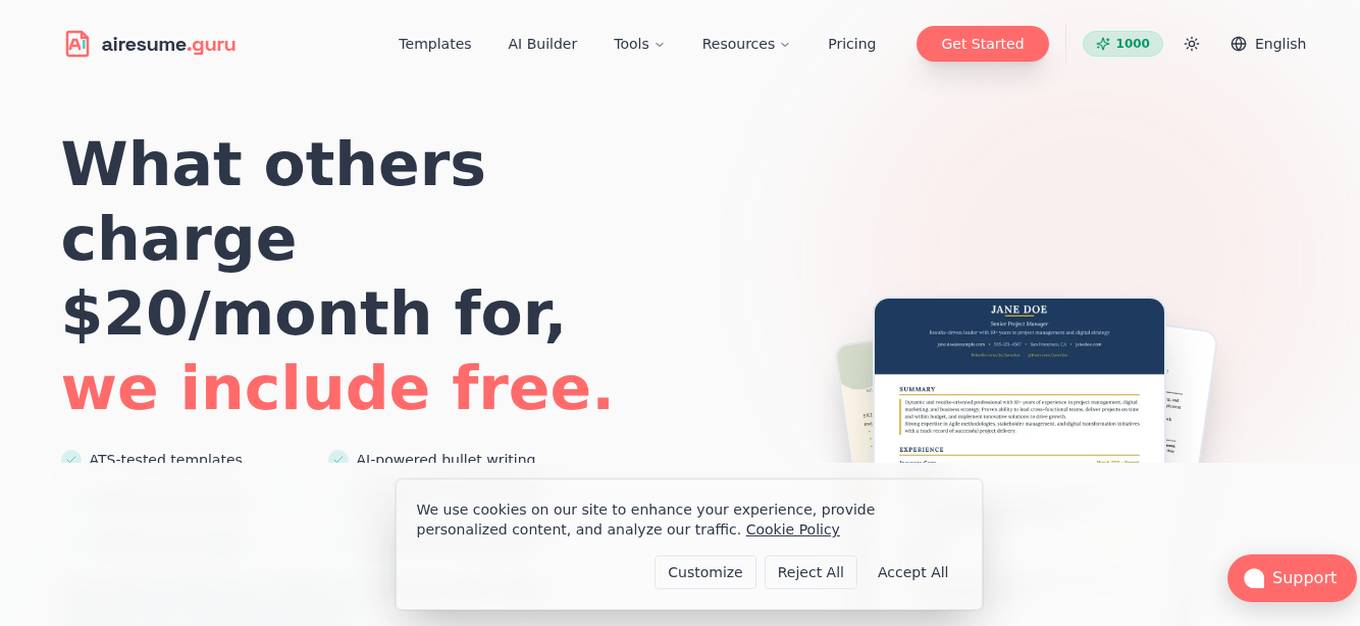
AI ResumeGuru
AI ResumeGuru is a professional resume building tool powered by artificial intelligence. It offers a range of features such as AI-powered bullet writing, real-time ATS scoring, PDF export without watermarks, portfolio site creation, and the ability to import from PDF or LinkedIn. The tool allows users to create a free account and upgrade only if they need unlimited access. AI ResumeGuru helps users generate achievement-driven bullet points by chatting naturally about their experience, eliminating the need to fill out forms. It also provides an AI assistant to optimize resumes for specific job roles and offers free online portfolio creation with no coding required.
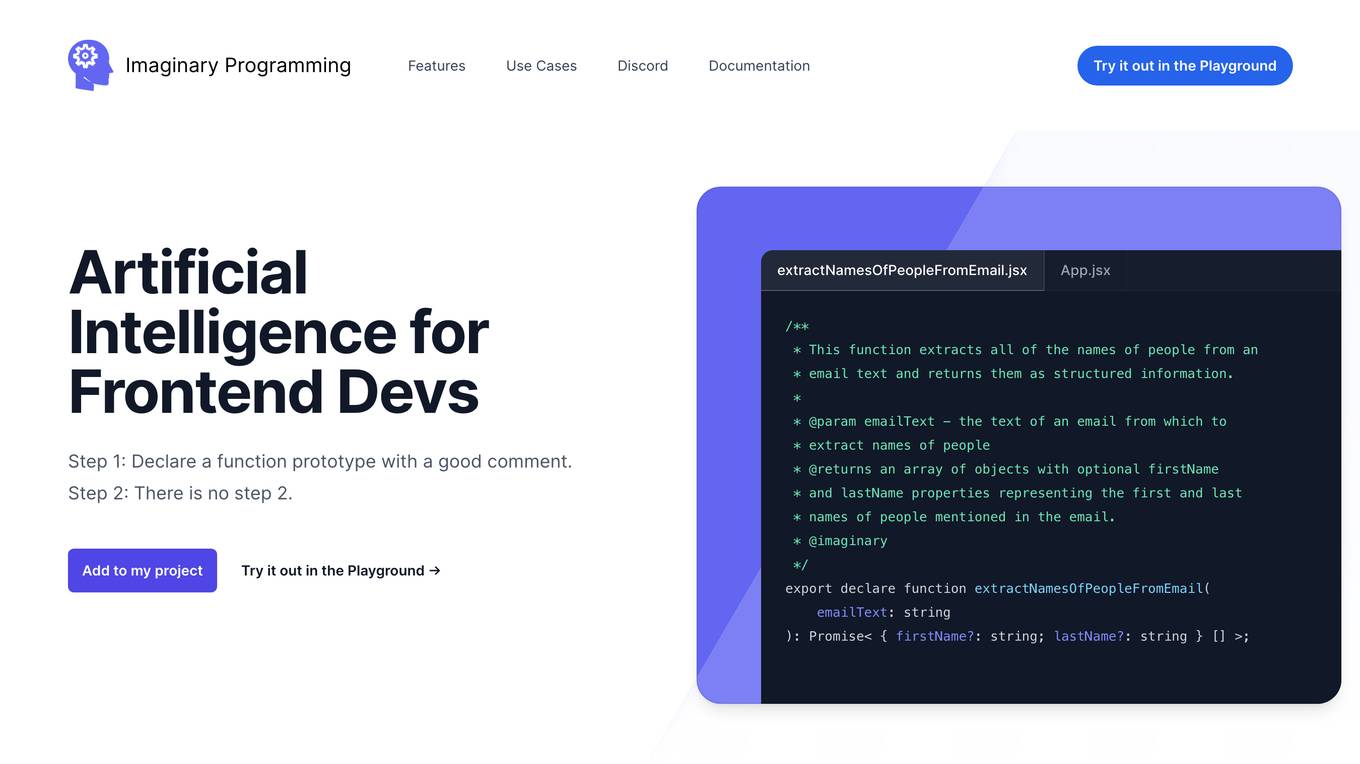
Imaginary Programming
Imaginary Programming is an AI tool that allows frontend developers to leverage OpenAI's GPT engine to add human-like intelligence to their code effortlessly. By defining function prototypes in TypeScript, developers can access GPT's capabilities without the need for AI model training. The tool enables users to extract structured data, generate text, classify data based on intent or emotion, and parse unstructured language. Imaginary Programming is designed to help developers tackle new challenges and enhance their projects with AI intelligence.
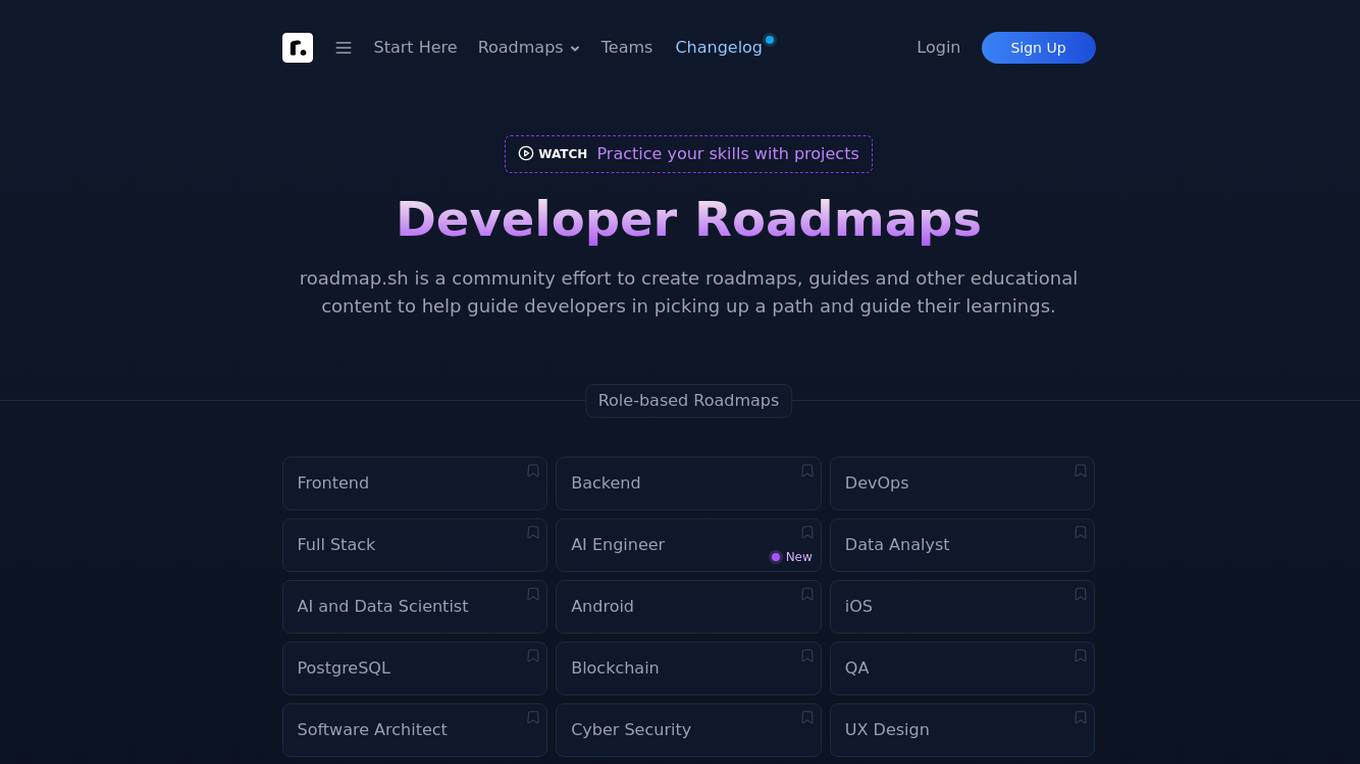
Developer Roadmaps
Developer Roadmaps (roadmap.sh) is a community-driven platform offering official roadmaps, guides, projects, best practices, questions, and videos to assist developers in skill development and career growth. It provides role-based and skill-based roadmaps covering various technologies and domains. The platform is actively maintained and continuously updated to enhance the learning experience for developers worldwide.
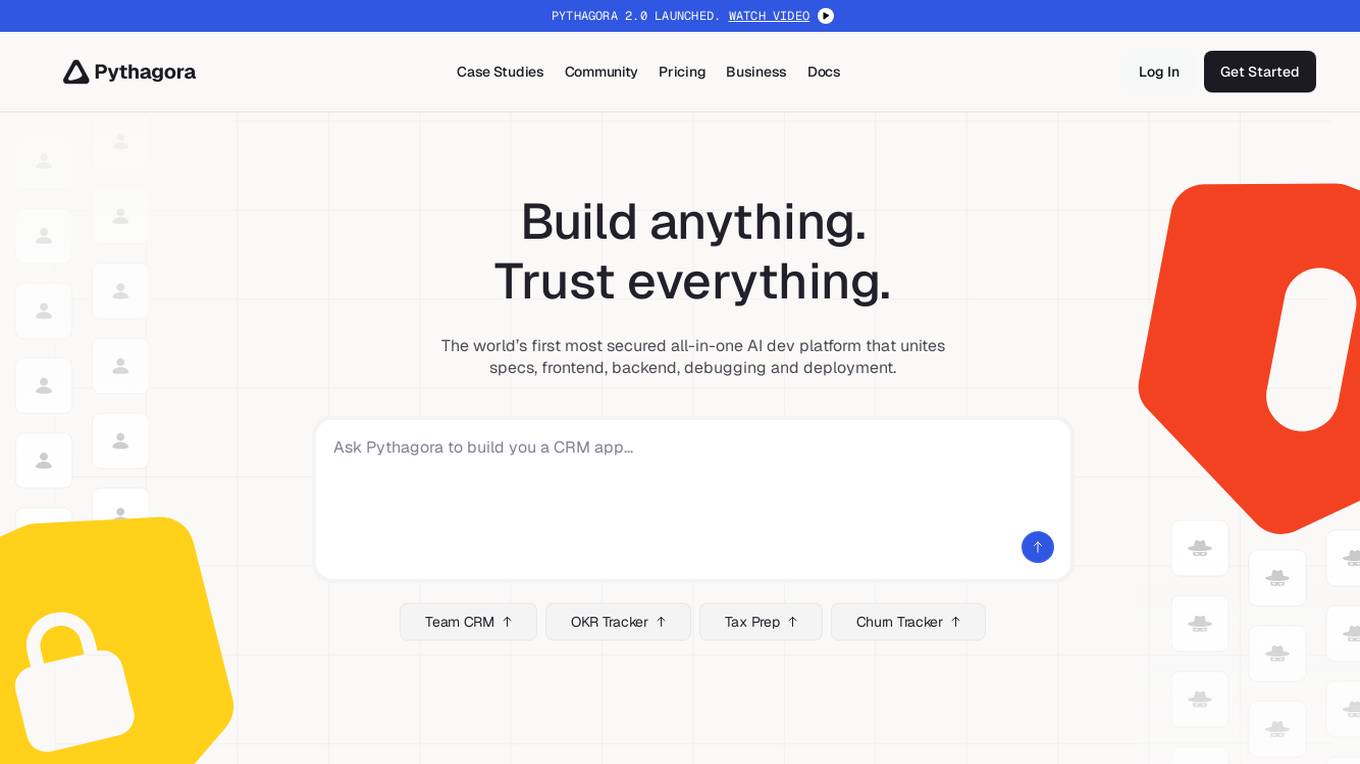
Pythagora
Pythagora is the world's first all-in-one AI development platform that offers a secure and comprehensive solution for building web applications. It combines frontend, backend, debugging, and deployment features in a single platform, enabling users to create apps without heavy coding requirements. Pythagora is powered by specialized AI agents and top-tier language models from OpenAI and Anthropic, providing users with tools for planning, writing, testing, and deploying full-stack web apps. The platform is designed to streamline the development process, offering enterprise-grade security, role-based authentication, and transparent control over projects.
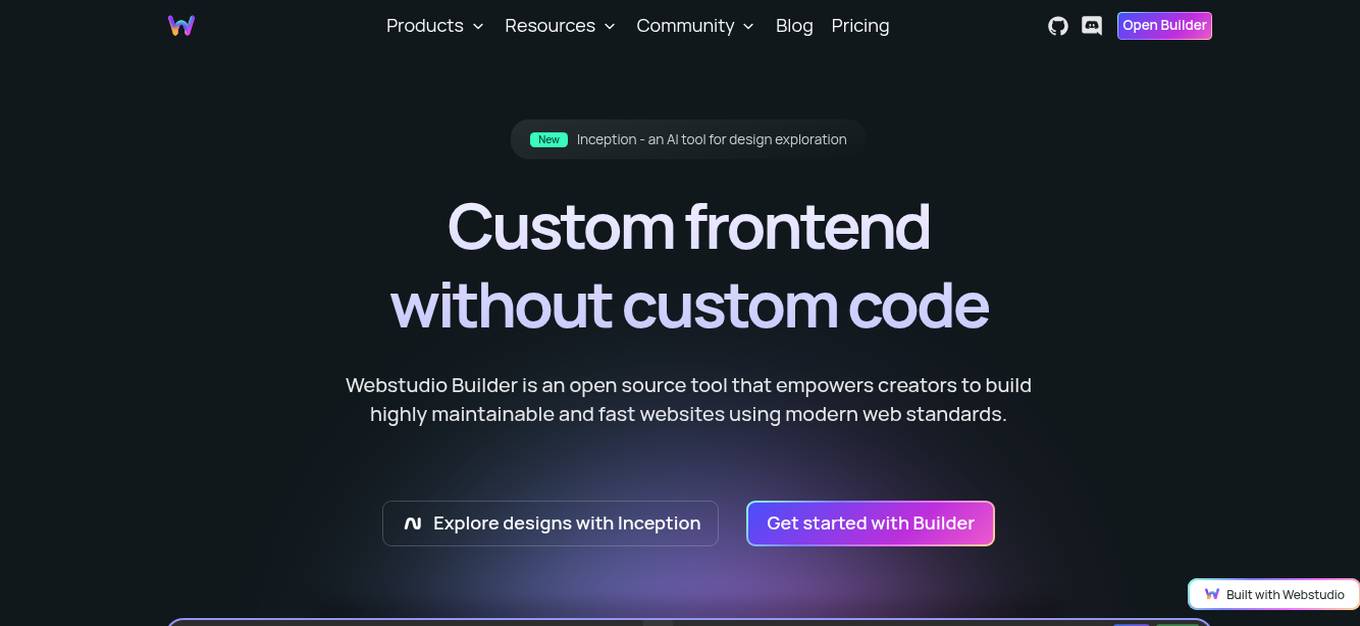
Webstudio
Webstudio is an advanced open-source website builder that empowers creators to build highly maintainable and fast websites using modern web standards. It offers a visual tool to control every CSS property, unit, and breakpoint, allowing users to optimize for search engines and iterate quickly without writing code. With features like dynamic routing, data bindings, and cloud hosting backed by Cloudflare, Webstudio enables users to create consistent and maintainable websites with ease. The platform is customizable, private, and transparent, allowing self-hosting and ensuring privacy by not tracking users.

AIComponent.dev
AIComponent.dev is an AI-powered component generator that allows users to create UI components quickly and easily. The platform enables users to engage in conversation, design stunning components, and develop code seamlessly in one place. By describing their desired component in a few words, users can generate product cards, contact forms, navigation menus, and more with the assistance of AI technology. AIComponent.dev aims to streamline the component creation process and enhance the efficiency of UI development.

Works
Works is a platform that connects enterprises with the top 1% of remote tech talent. It uses advanced AI technology to ensure precision-matching of talent to project requirements, saving time and resources. Works offers transparent pricing with a flat 10% transaction fee and provides risk-free hiring with payment only when the work is completed to satisfaction.
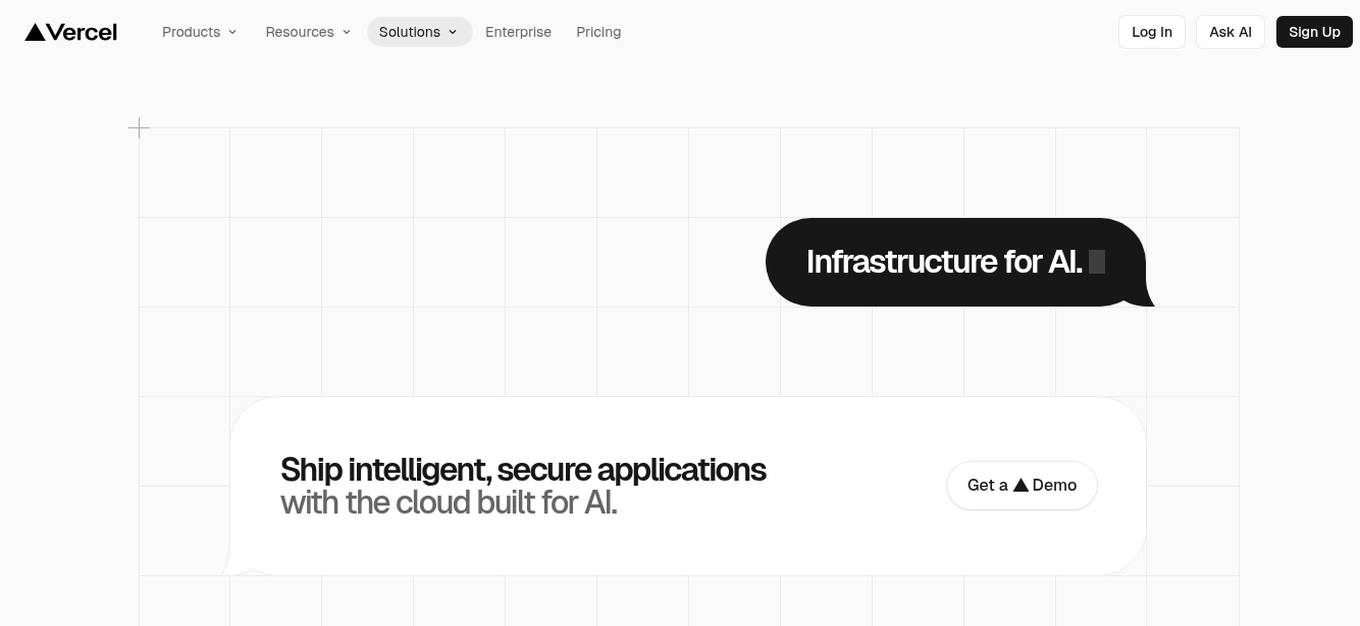
Vercel
The website is an AI tool called Vercel that offers an end-to-end platform for AI workloads. It provides various AI-related services such as AI SDK, AI Gateway, Fluid Compute, and more. Vercel aims to help users deploy intelligent and secure applications quickly with the cloud infrastructure optimized for AI development.
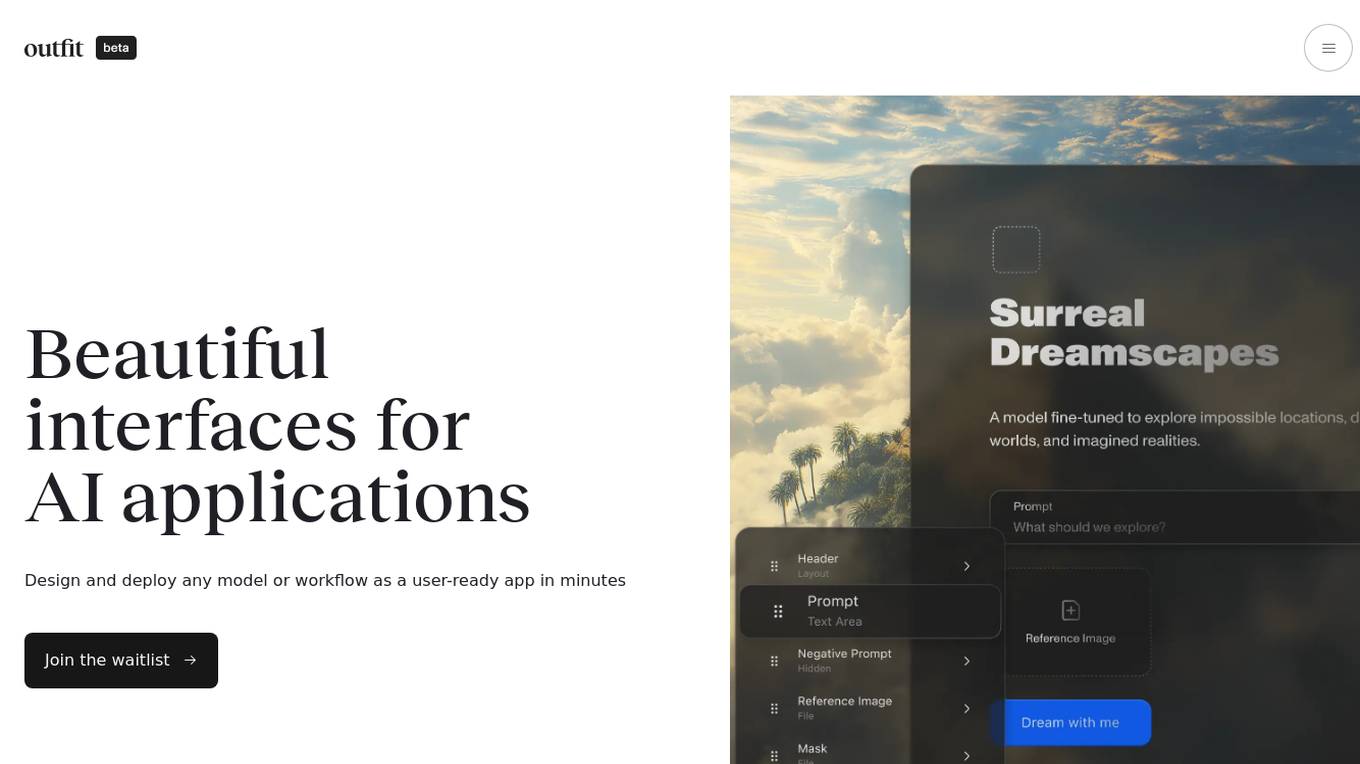
Outfit AI
Outfit AI is an AI tool that enables users to design and deploy AI models or workflows as user-ready applications in minutes. It allows users to create custom user interfaces for their AI-powered apps by dropping in an API key from Replicate or Hugging Face. With Outfit AI, users can have creative control over the design of their apps, build complex workflows without any code, and optimize prompts for better performance. The tool aims to help users launch their models faster, save time, and enhance their AI applications with a built-in product copilot.
2 - Open Source AI Tools
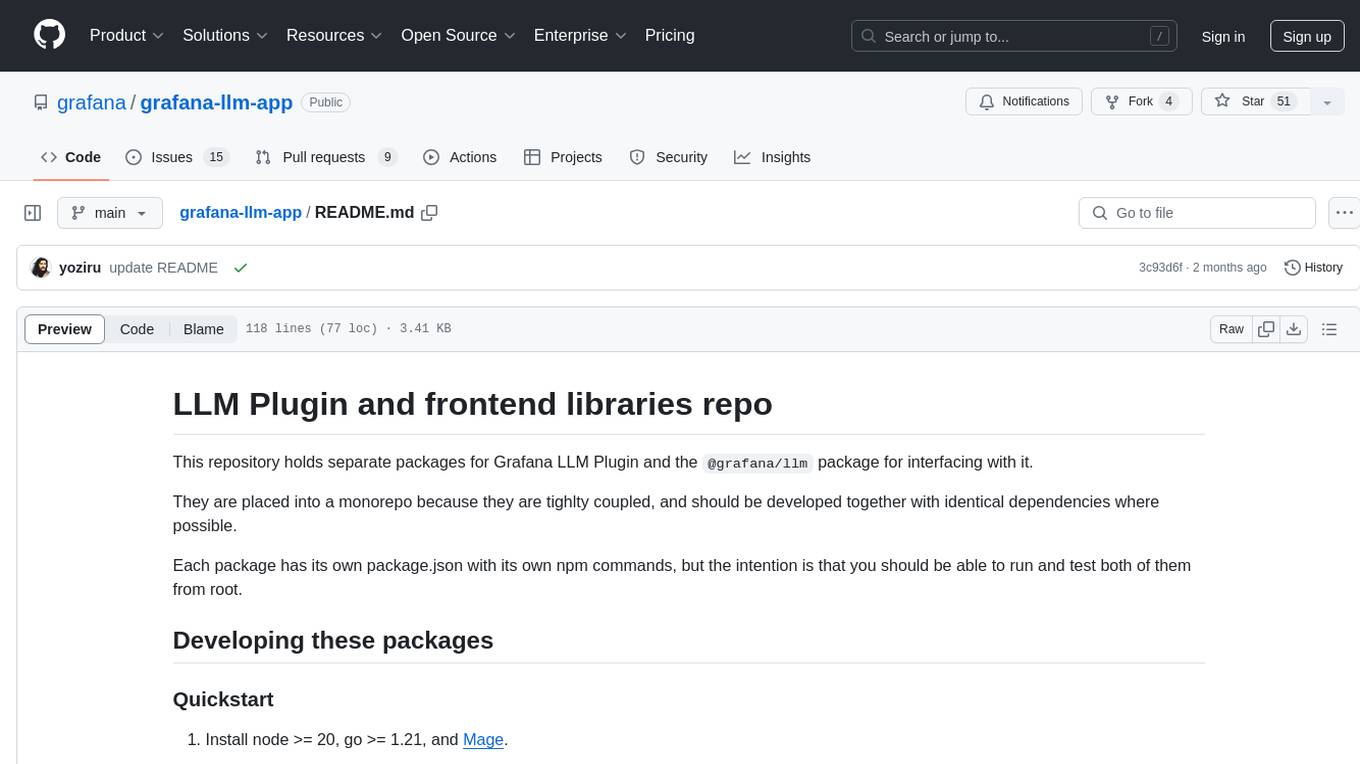
grafana-llm-app
This repository contains separate packages for Grafana LLM Plugin and the @grafana/llm package for interfacing with it. The packages are tightly coupled and developed together with identical dependencies. The repository provides instructions for developing the packages, including backend and frontend development, testing, and release processes.
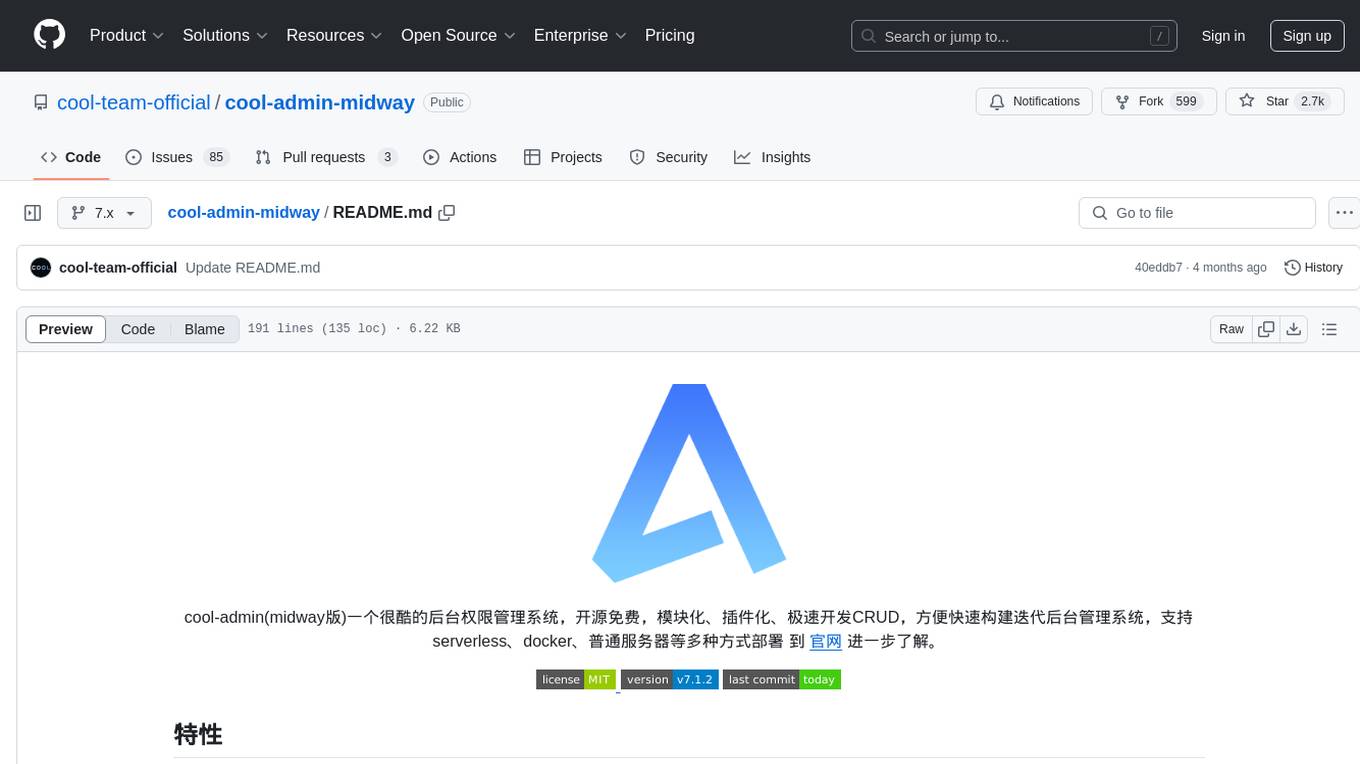
cool-admin-midway
Cool-admin (midway version) is a cool open-source backend permission management system that supports modular, plugin-based, rapid CRUD development. It facilitates the quick construction and iteration of backend management systems, deployable in various ways such as serverless, docker, and traditional servers. It features AI coding for generating APIs and frontend pages, flow orchestration for drag-and-drop functionality, modular and plugin-based design for clear and maintainable code. The tech stack includes Node.js, Midway.js, Koa.js, TypeScript for backend, and Vue.js, Element-Plus, JSX, Pinia, Vue Router for frontend. It offers friendly technology choices for both frontend and backend developers, with TypeScript syntax similar to Java and PHP for backend developers. The tool is suitable for those looking for a modern, efficient, and fast development experience.
20 - OpenAI Gpts
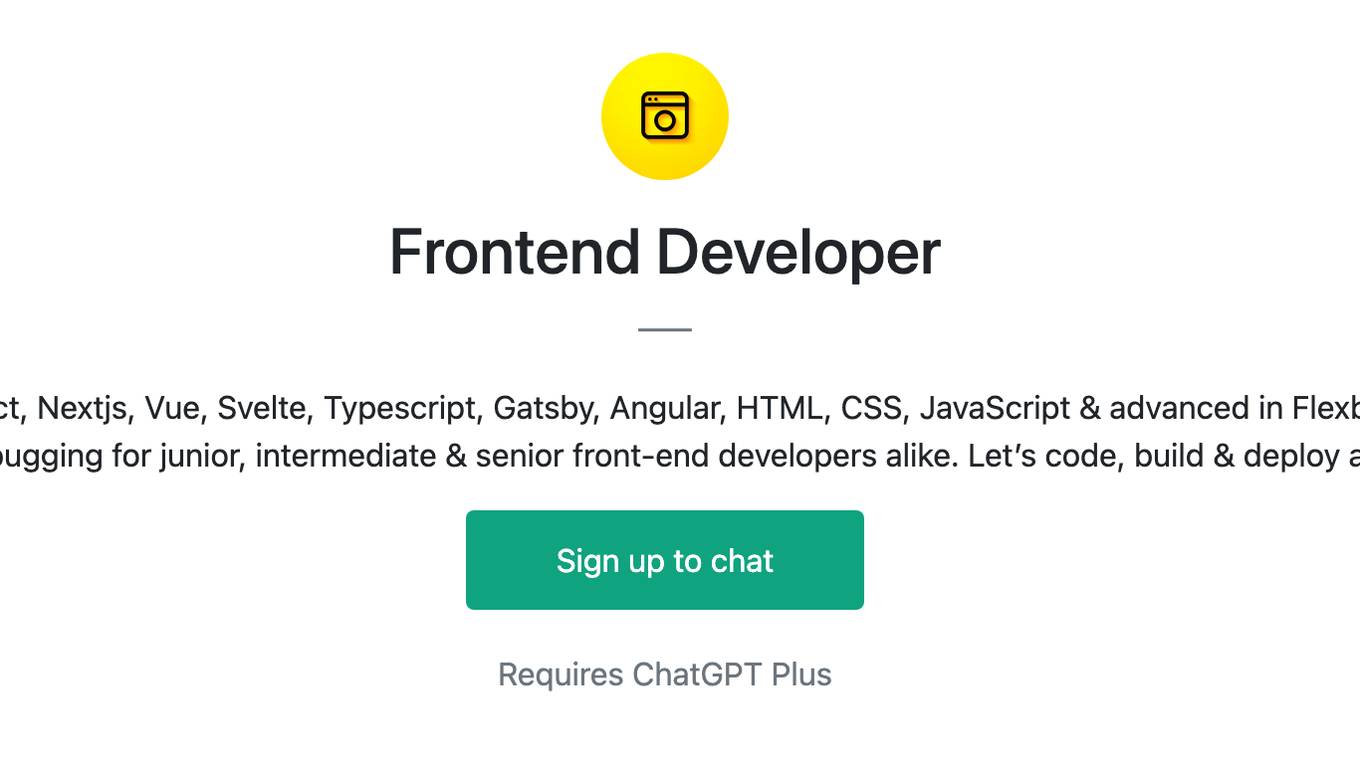
Frontend Developer
AI front-end developer expert in coding React, Nextjs, Vue, Svelte, Typescript, Gatsby, Angular, HTML, CSS, JavaScript & advanced in Flexbox, Tailwind & Material Design. Mentors in coding & debugging for junior, intermediate & senior front-end developers alike. Let’s code, build & deploy a SaaS app.

Frontend Builder
Generates complete, secure, and efficient frontend code for website templates.
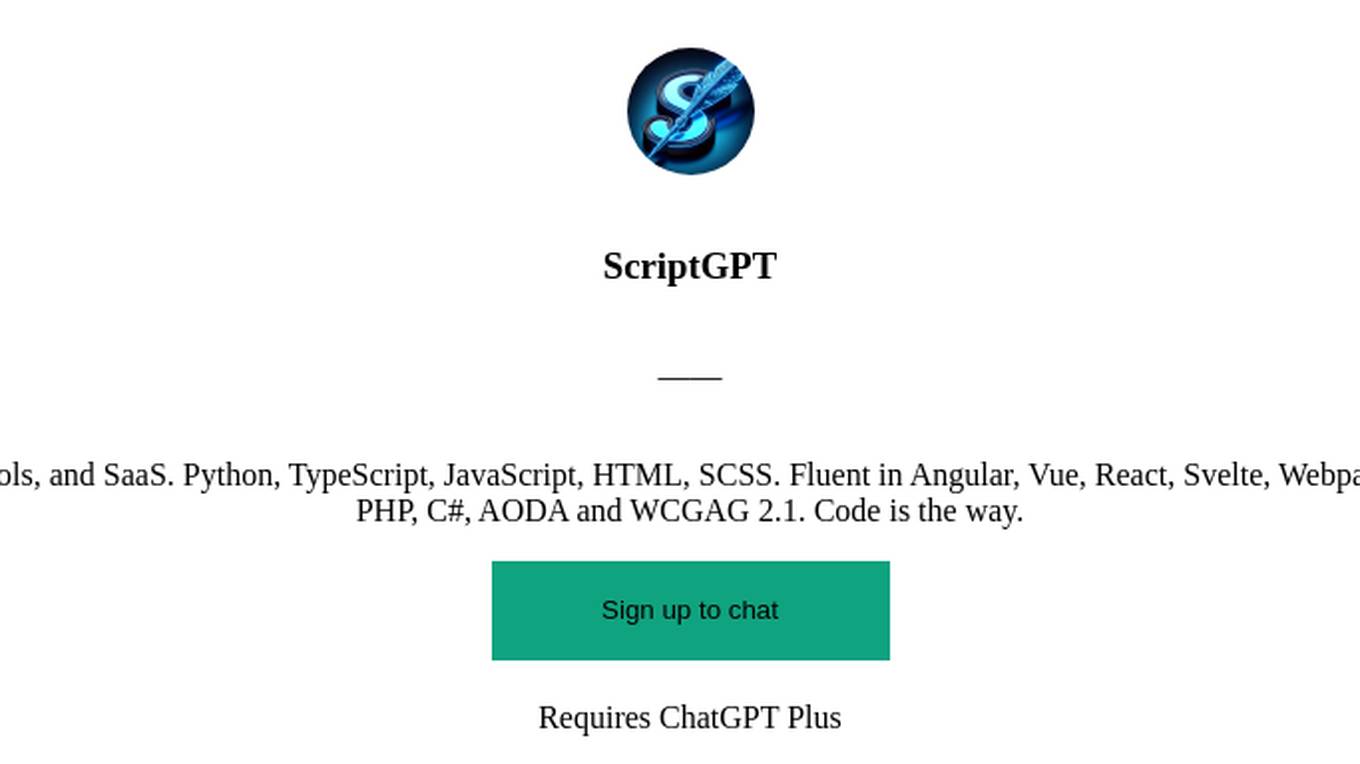
ScriptGPT
Specializing in Web Development, Apps, Dev Tools, and SaaS. Python, TypeScript, JavaScript, HTML, SCSS. Fluent in Angular, Vue, React, Svelte, Webpack, Vite, Vercel, Next, Nuxt, SvelteKit, Node, GO, PHP, C#, AODA and WCGAG 2.1. Code is the way.
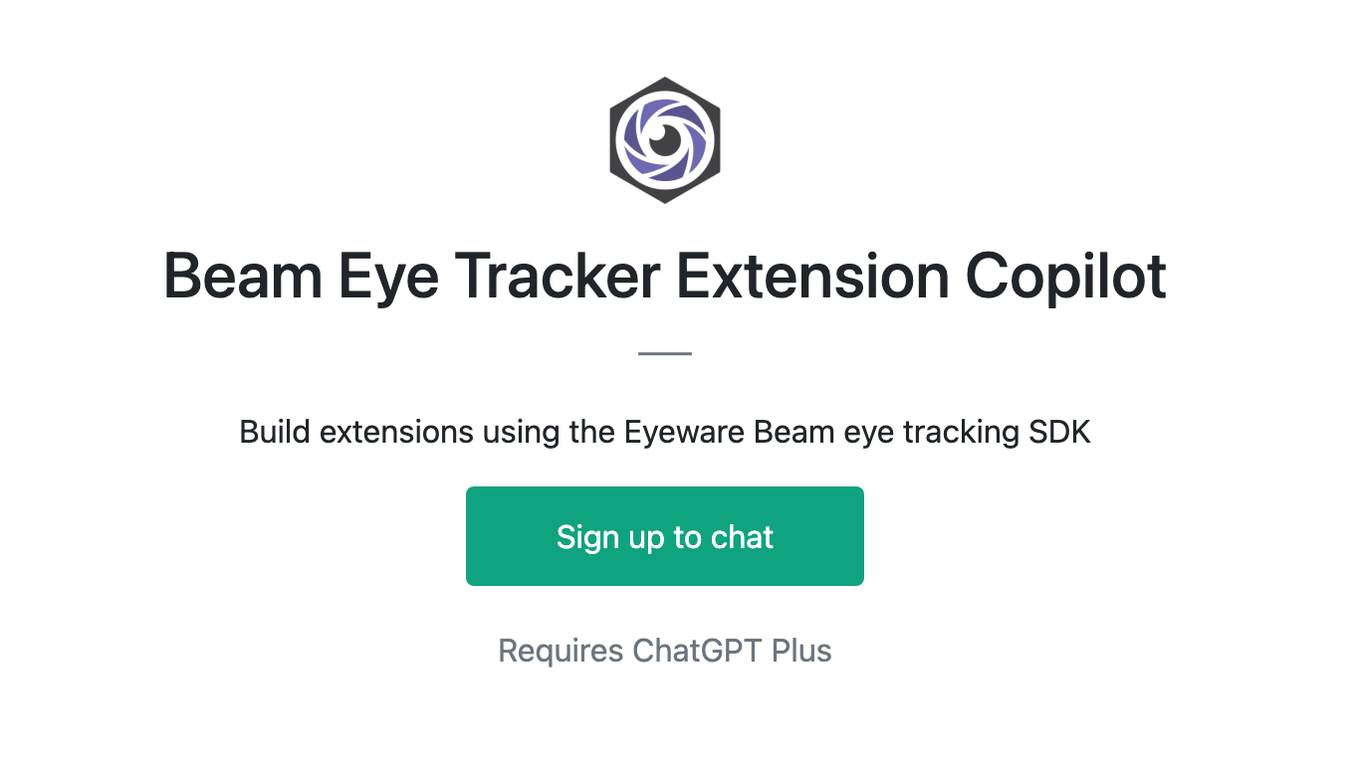
Beam Eye Tracker Extension Copilot
Build extensions using the Eyeware Beam eye tracking SDK
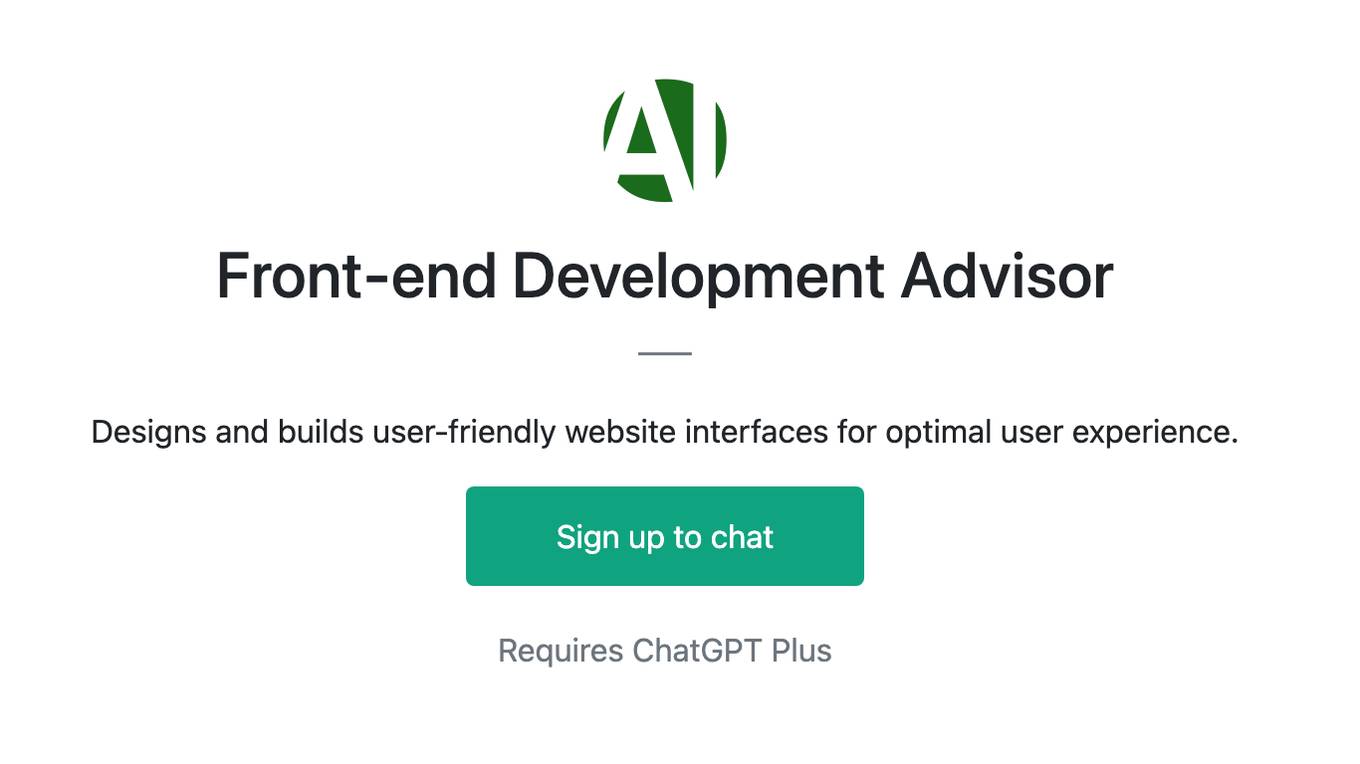
Front-end Development Advisor
Designs and builds user-friendly website interfaces for optimal user experience.


